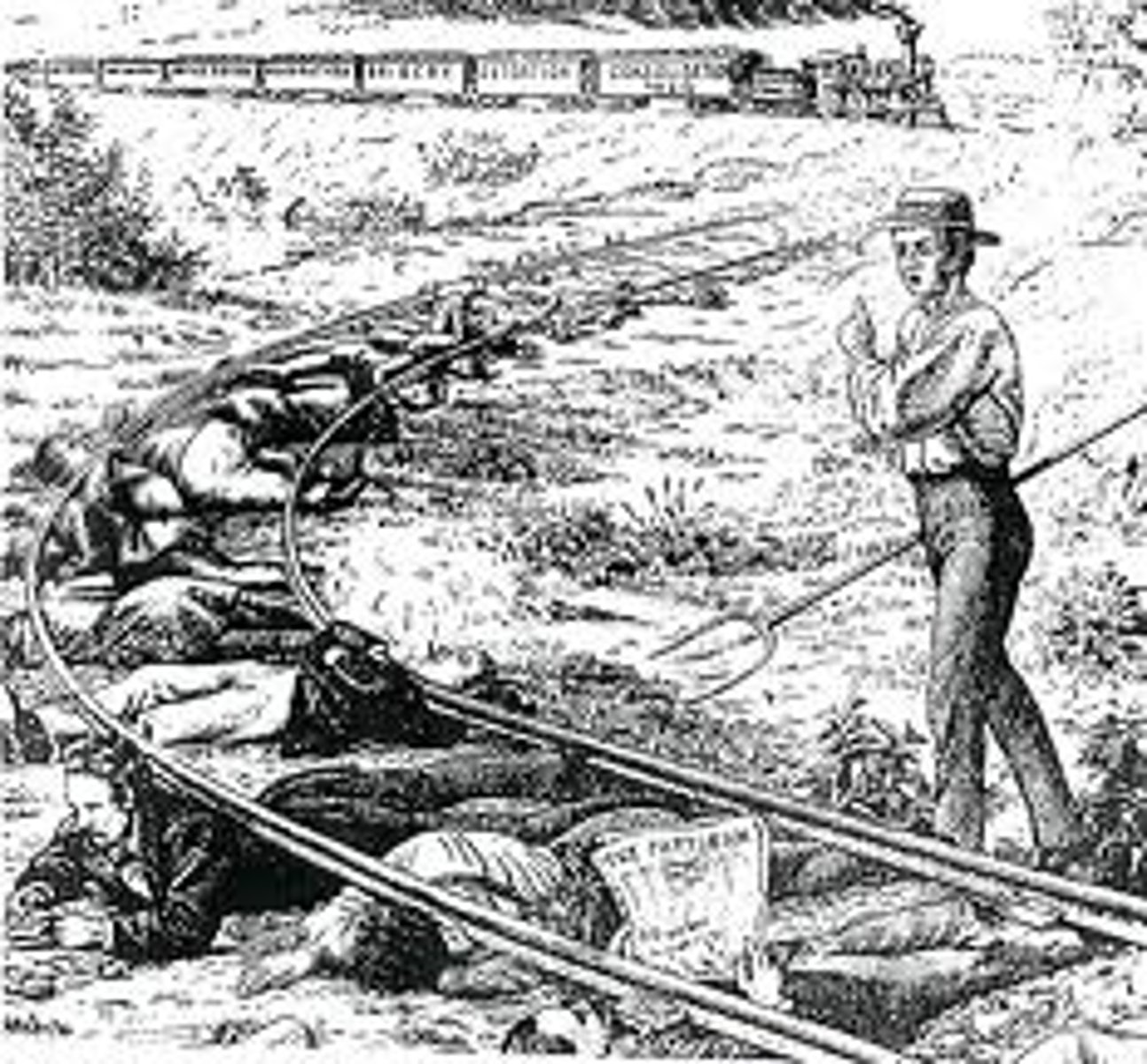AP US History Unit 6
1/44
There's no tags or description
Looks like no tags are added yet.
Name | Mastery | Learn | Test | Matching | Spaced |
|---|
No study sessions yet.
45 Terms
People's (Populist) Party
A political party in the United States. For a few years, 1892-96, it played a major role as a left-wing force in American politics. Drew support from angry farmers in the West and South and operated on the left-wing of American politics. Highly critical of capitalism, especially banks and railroads. Allied itself with the labor movement.

assimilation
the process by which a person or a group's language and/or culture come to resemble those of another group

The Gilded Age
The late 19th century, from the 1870s to about 1900. Term derived from writer Mark Twain's 1873 The Gilded Age: A Tale of Today, which satirized an era of serious social problems masked by a thin gold gilding of economic progress.
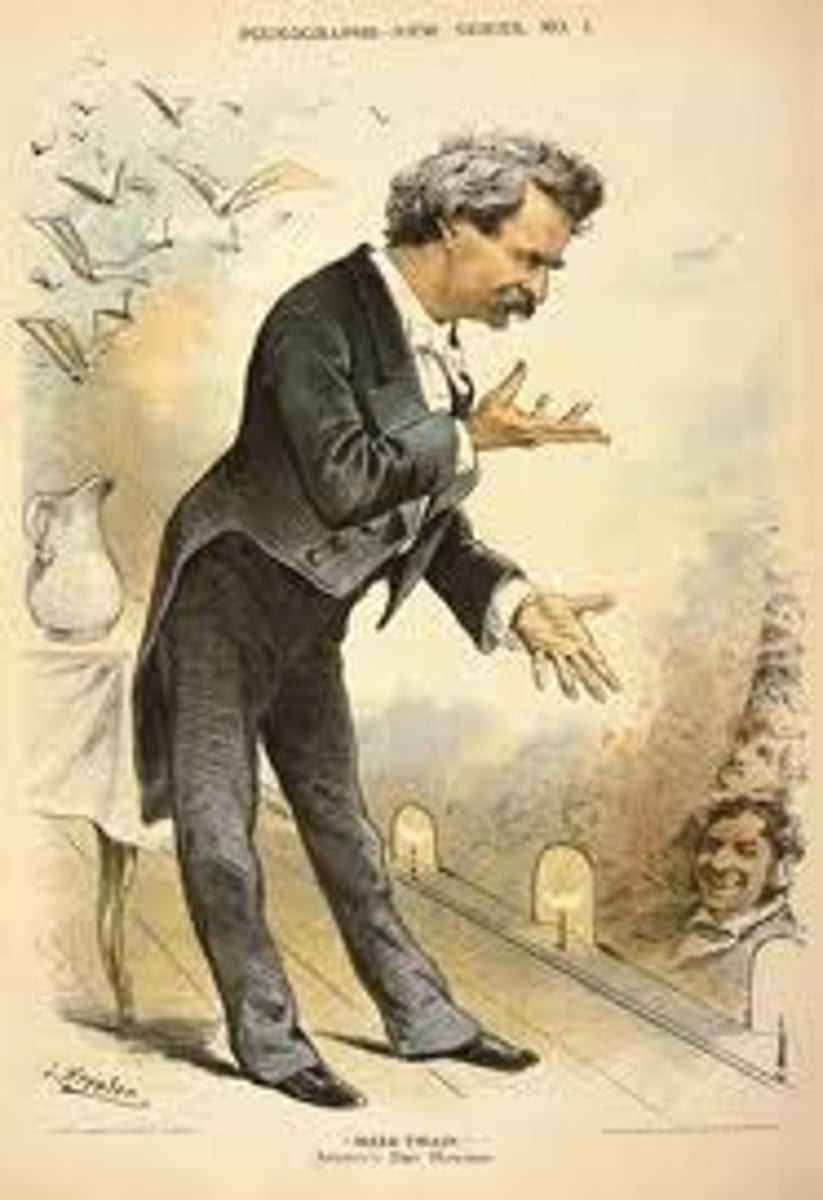
Social Darwinism
Term coined in the late 19th century to describe the idea that humans, like animals and plants, compete in a struggle for existence in which natural selection results in "survival of the fittest." Provided a justification for the enormous wealth and power wielded by industrialists in the latter half of the 19th century.
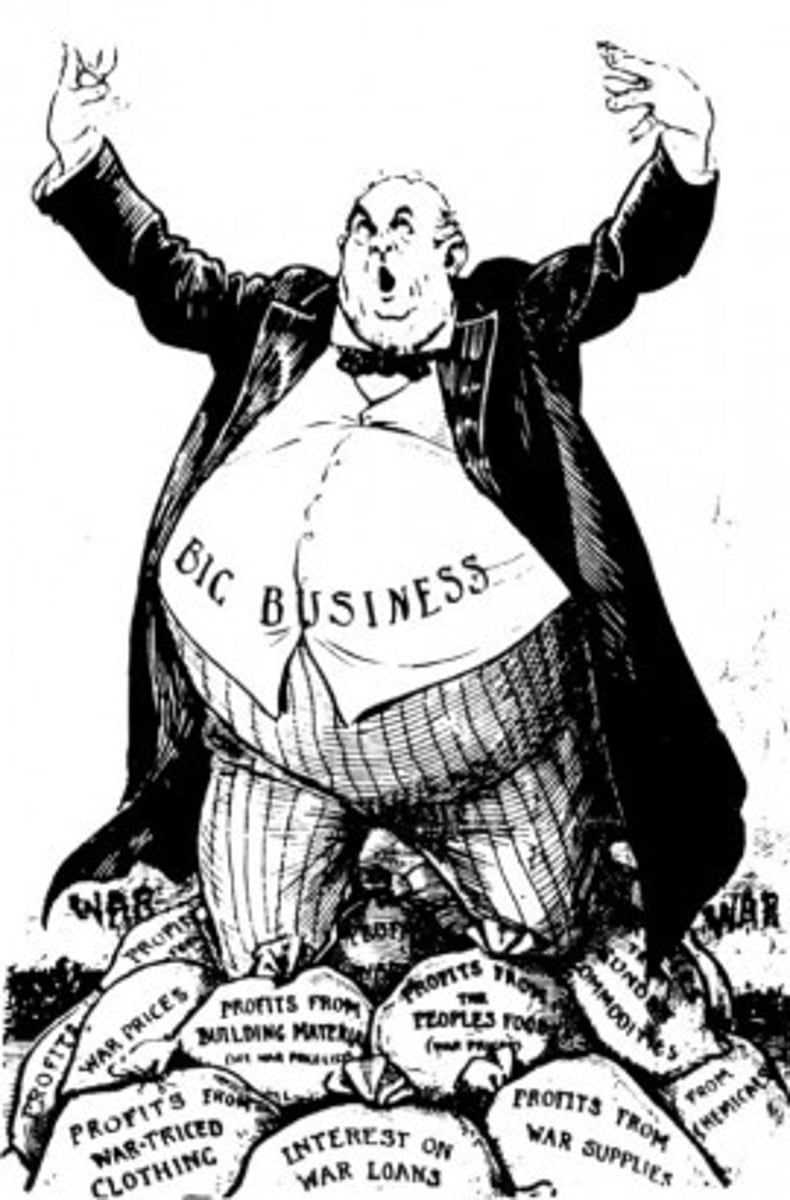
Gospel of Wealth
An essay written by Andrew Carnegie in June of 1889 that describes the responsibility of philanthropy by the new upper class of self-made rich.
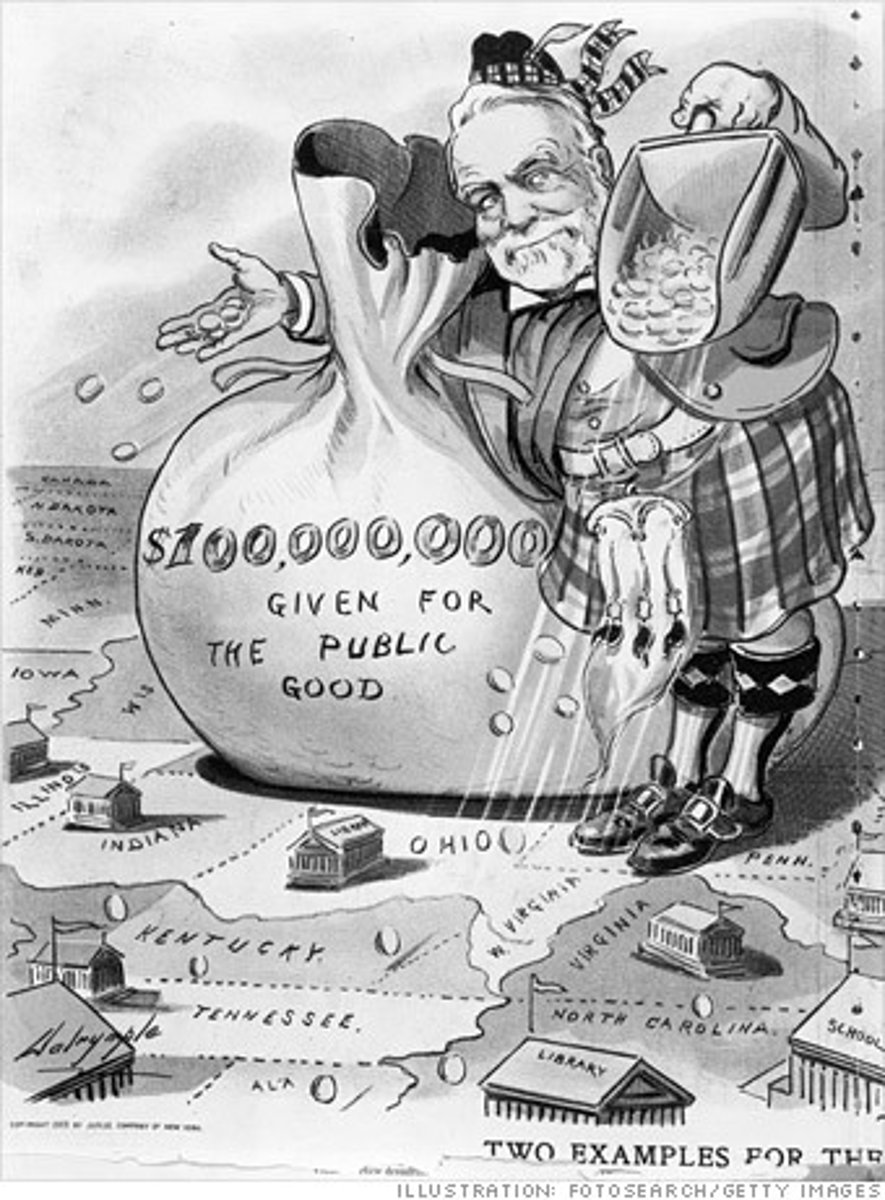
Jane Addams
A pioneer American settlement activist/reformer, social worker, public philosopher, sociologist, author, and leader in women's suffrage and world peace. She created the first Hull House. Co-winner of 1931 Nobel Peace Prize.
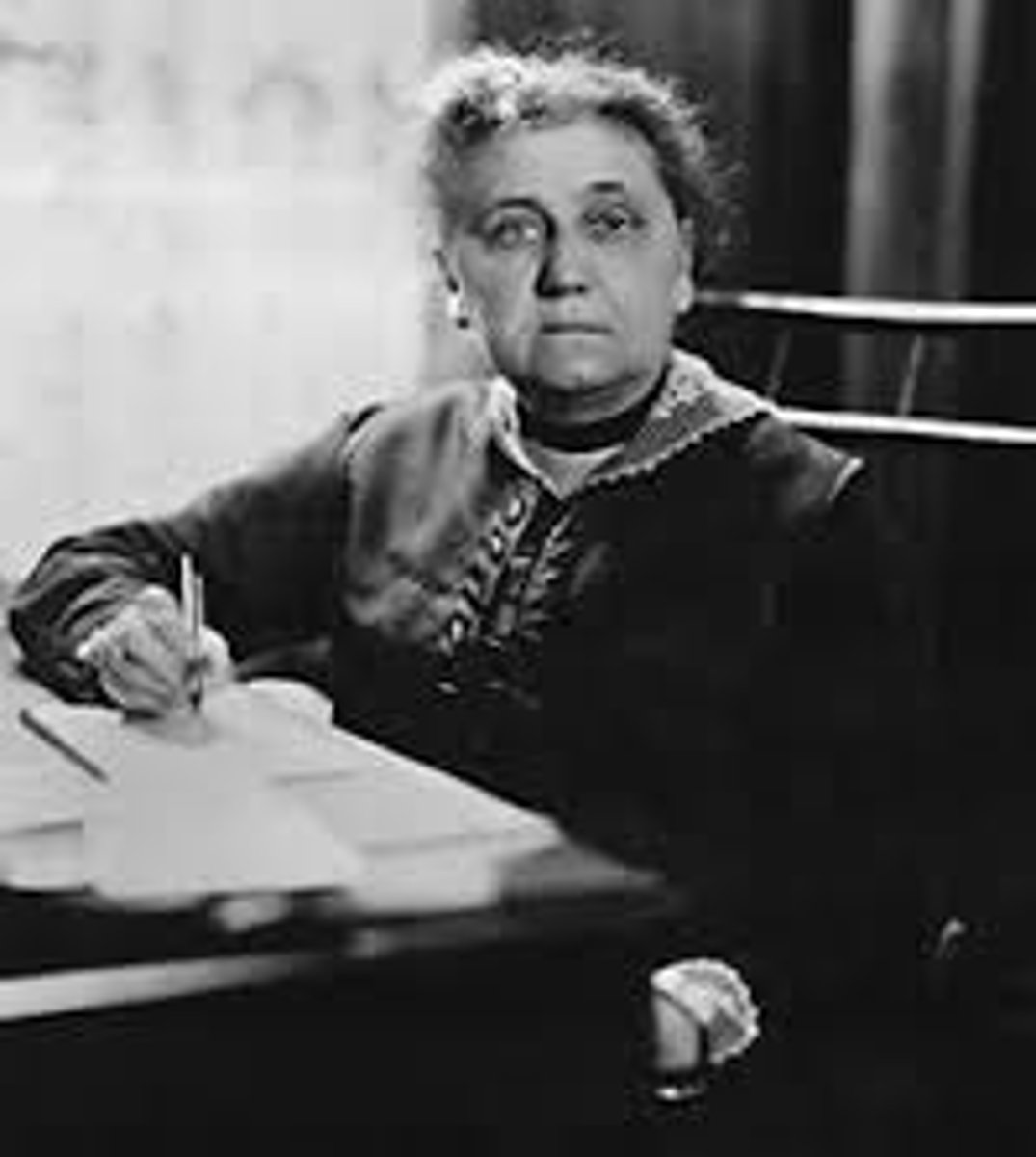
Plessy v. Ferguson
1896 - Legalized segregation in publicly owned facilities on the basis of "separate but equal."
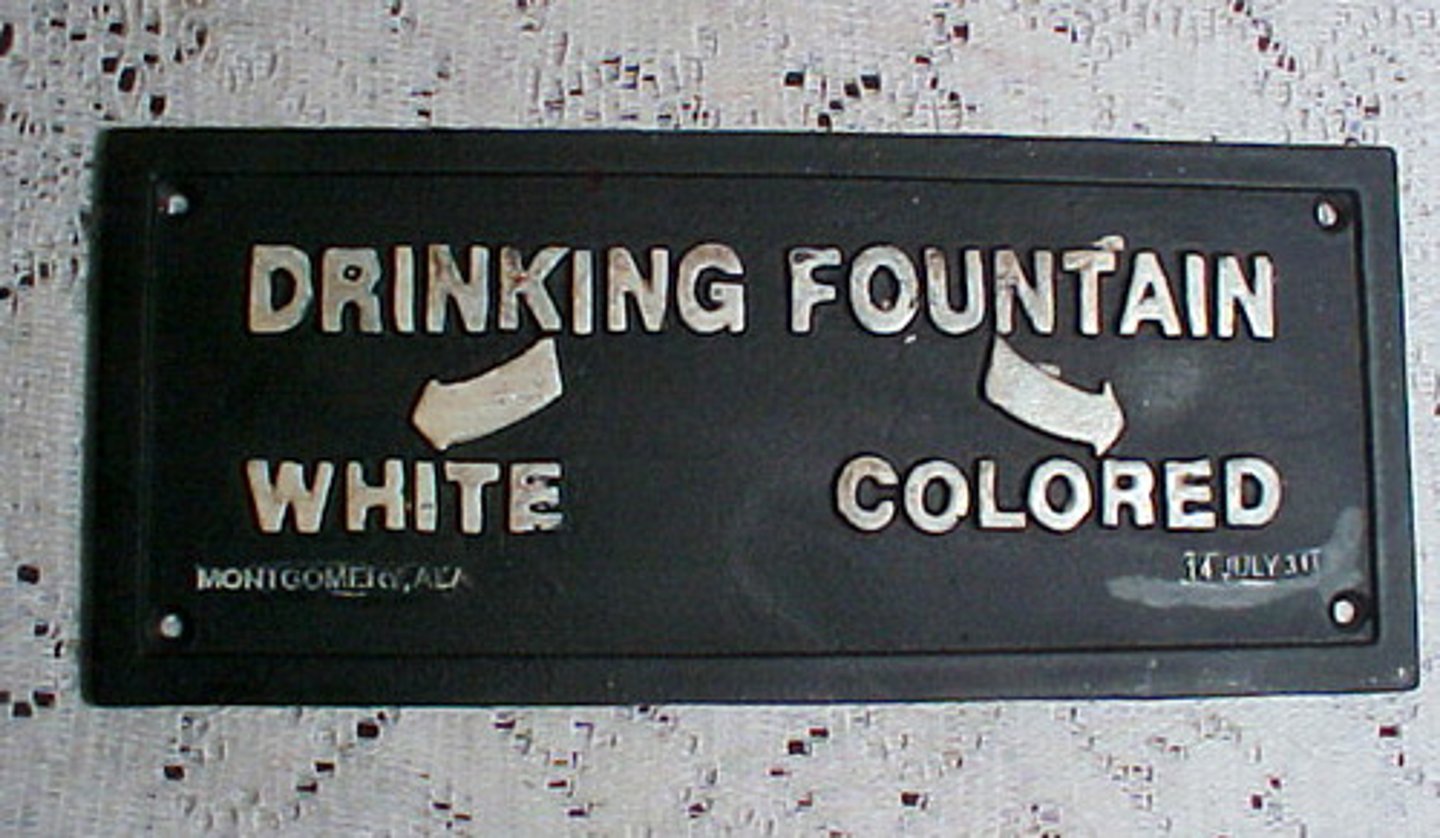
trust
A set of companies managed by a small group known as trustees, who can prevent companies in the trust from competing with each other.
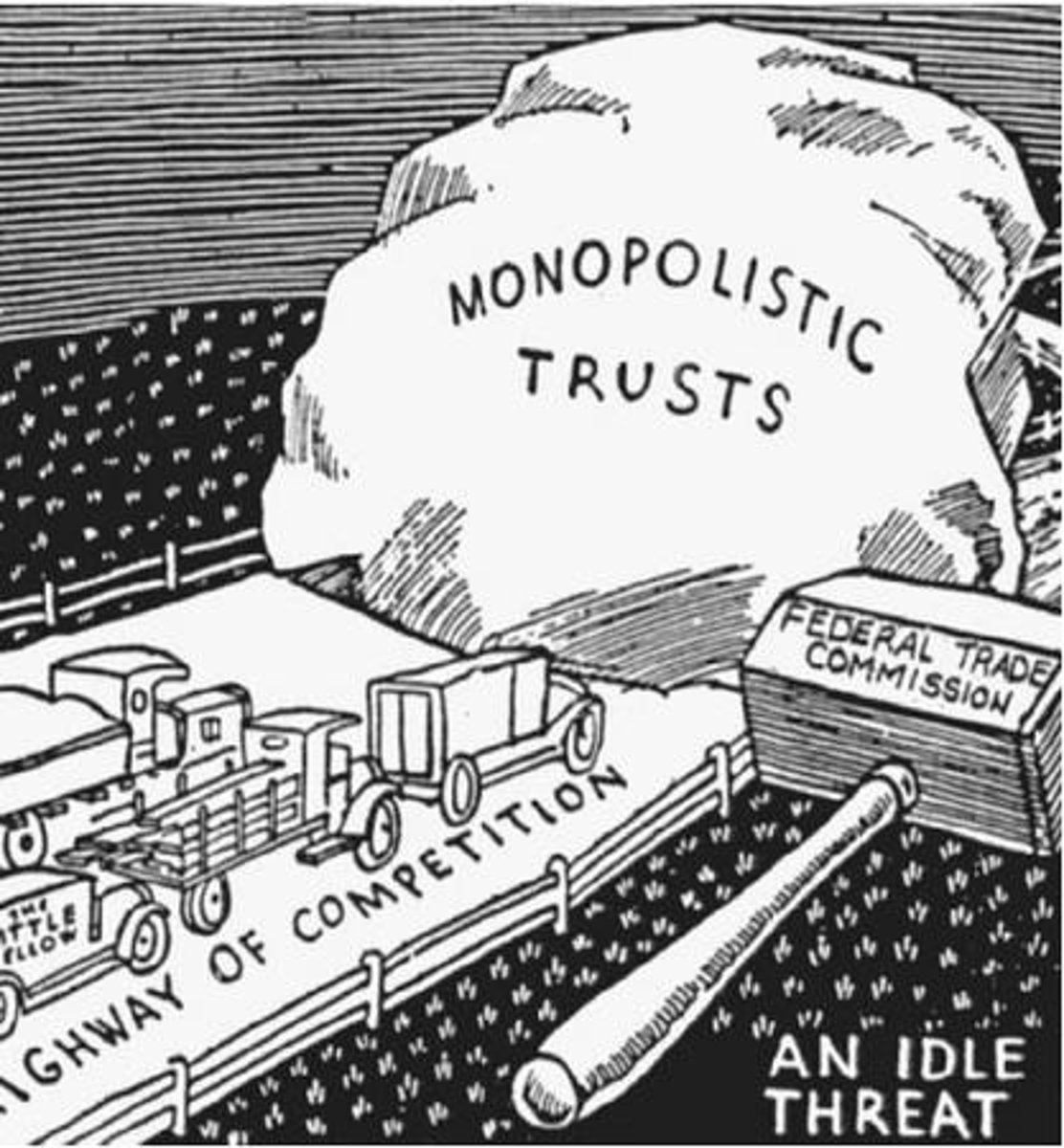
socialist
one who believes in the ownership and control of the major means of production by the whole community rather than by individuals or corporations
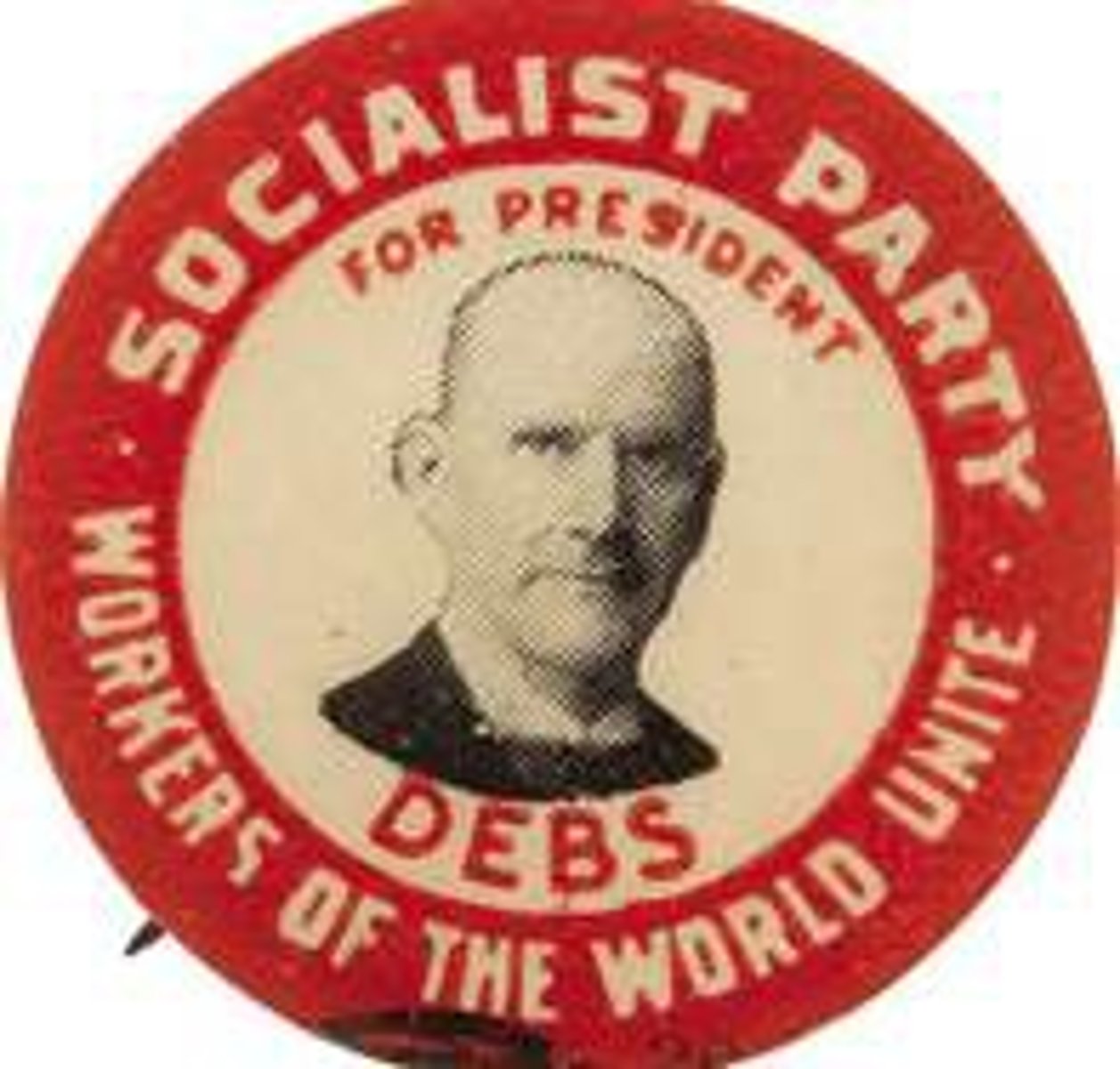
anarchist
one who believes that formal, coercive government is wrong in principle

tenement
a multi-dwelling building, often poor or overcrowded
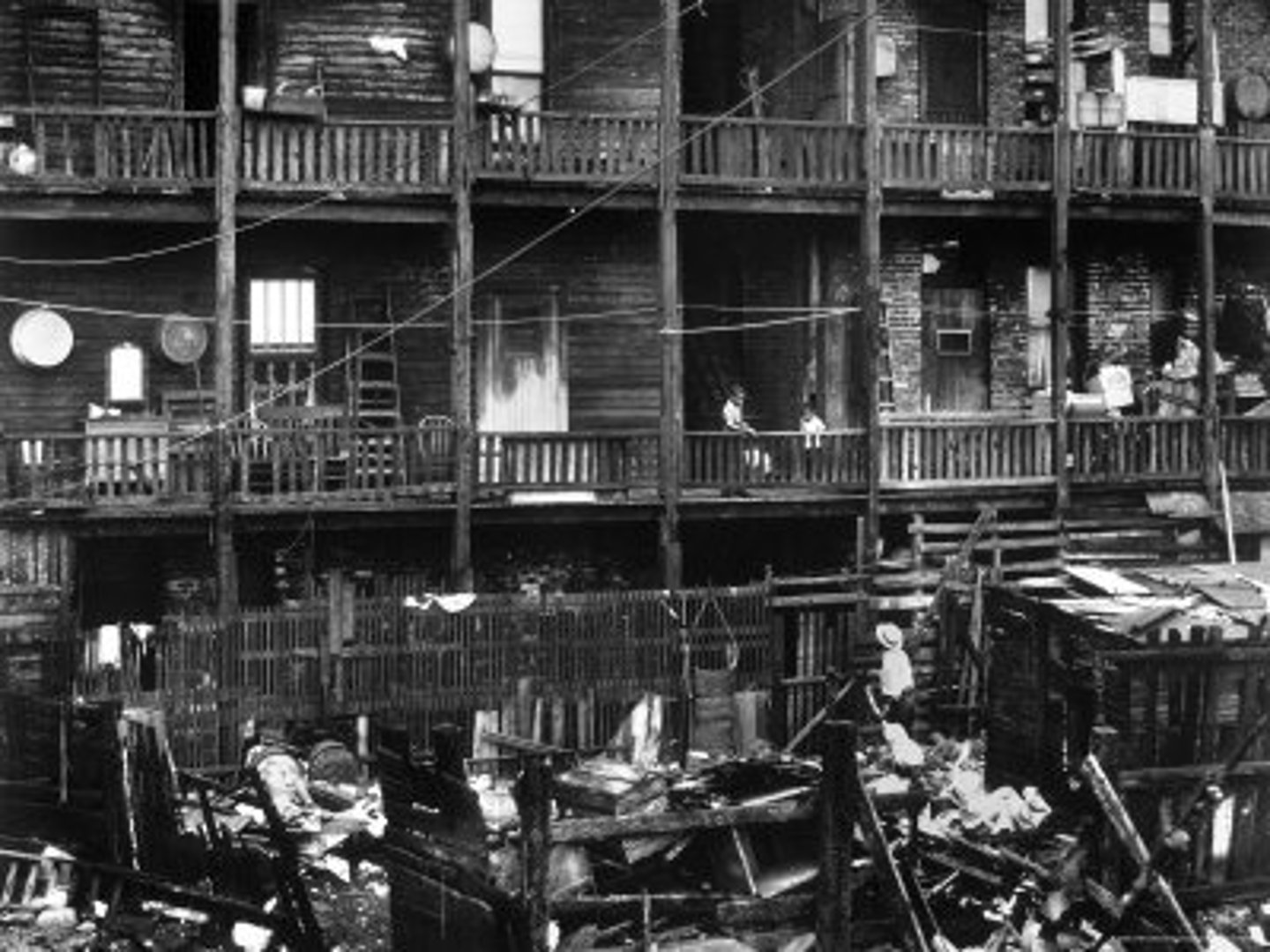
Dawes Act
land given to individual Indians to discourage tribal mindset; encouraged Indians to farm for a living instead of communally owning land (Kill the Indian, Save the Man-Assimilate)

Vertical Integration
Strategy to maximize profits by attempting to own every step of the manufacturing process (ex. Carnegie Steel)
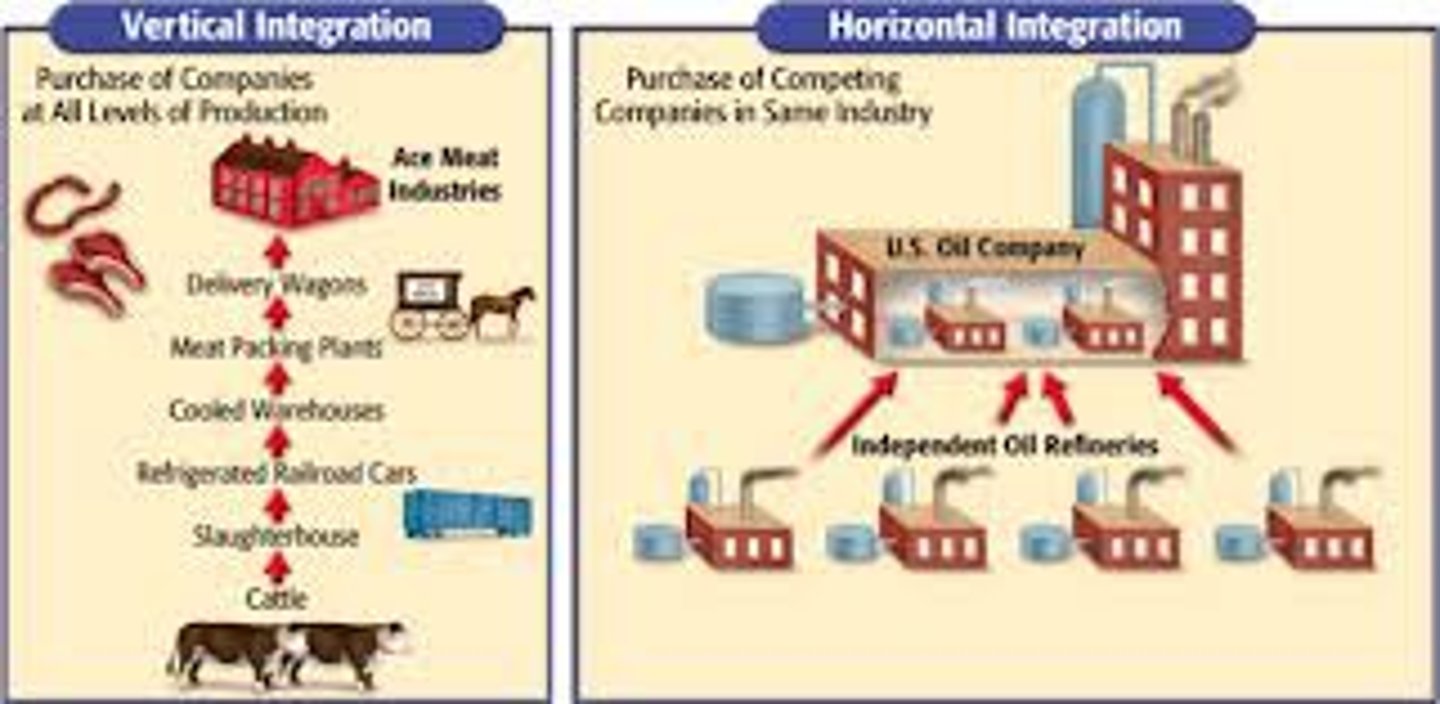
Horizontal Integration
Strategy to maximize profits by attempting to purchase competing companies in the same industry; monopoly-building (ex. Rockefeller's Standard Oil)

Knights of Labor
American labor organization in the 1880s led by Terence V. Powderly. Organized a wide range of workers, including skilled and unskilled, and had broad reform goals.
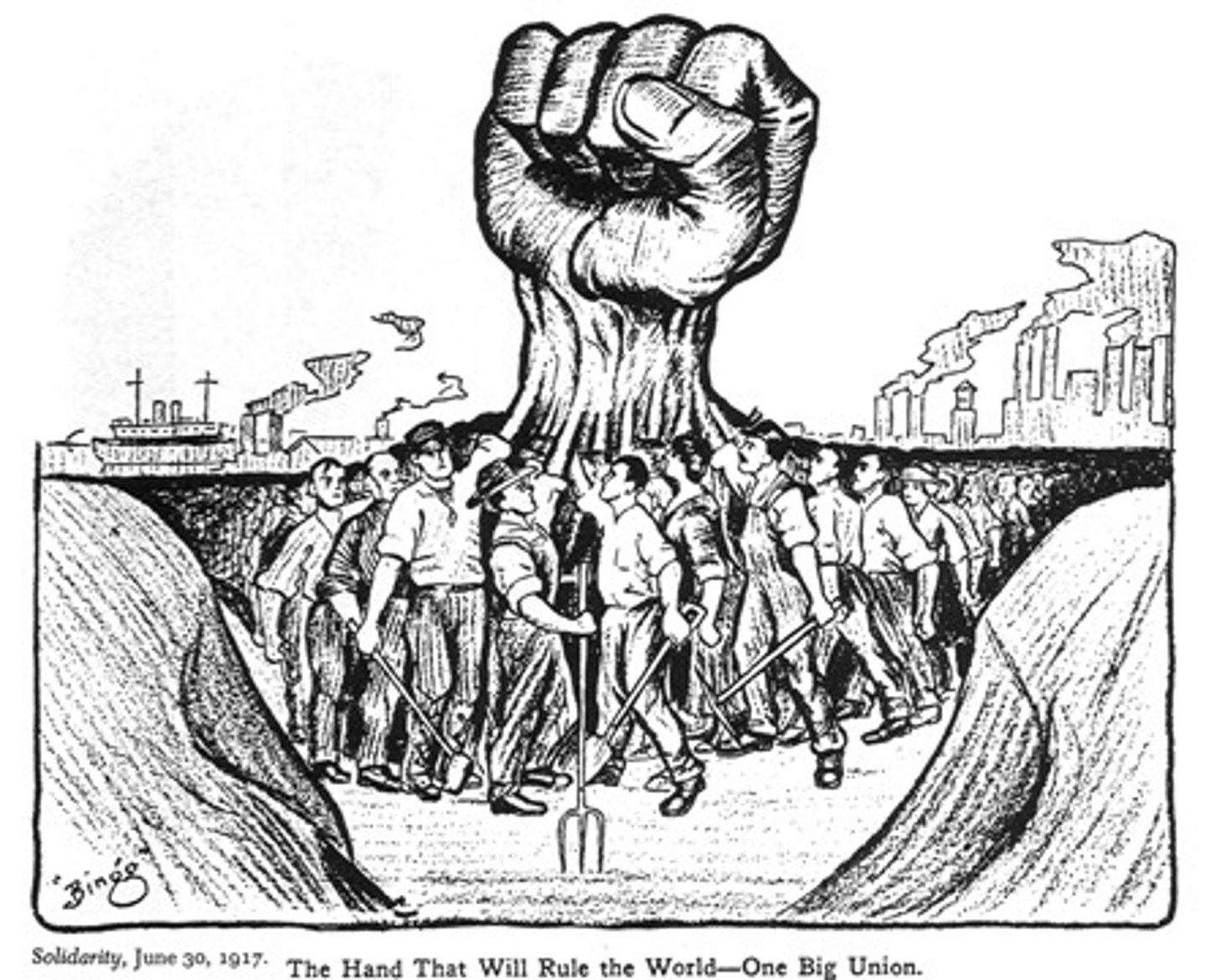
Haymarket Riot
Labor dispute in Chicago that ended with a bomb being thrown at police resulting in many deaths. Led to an unfavorable public opinion of organized labor.
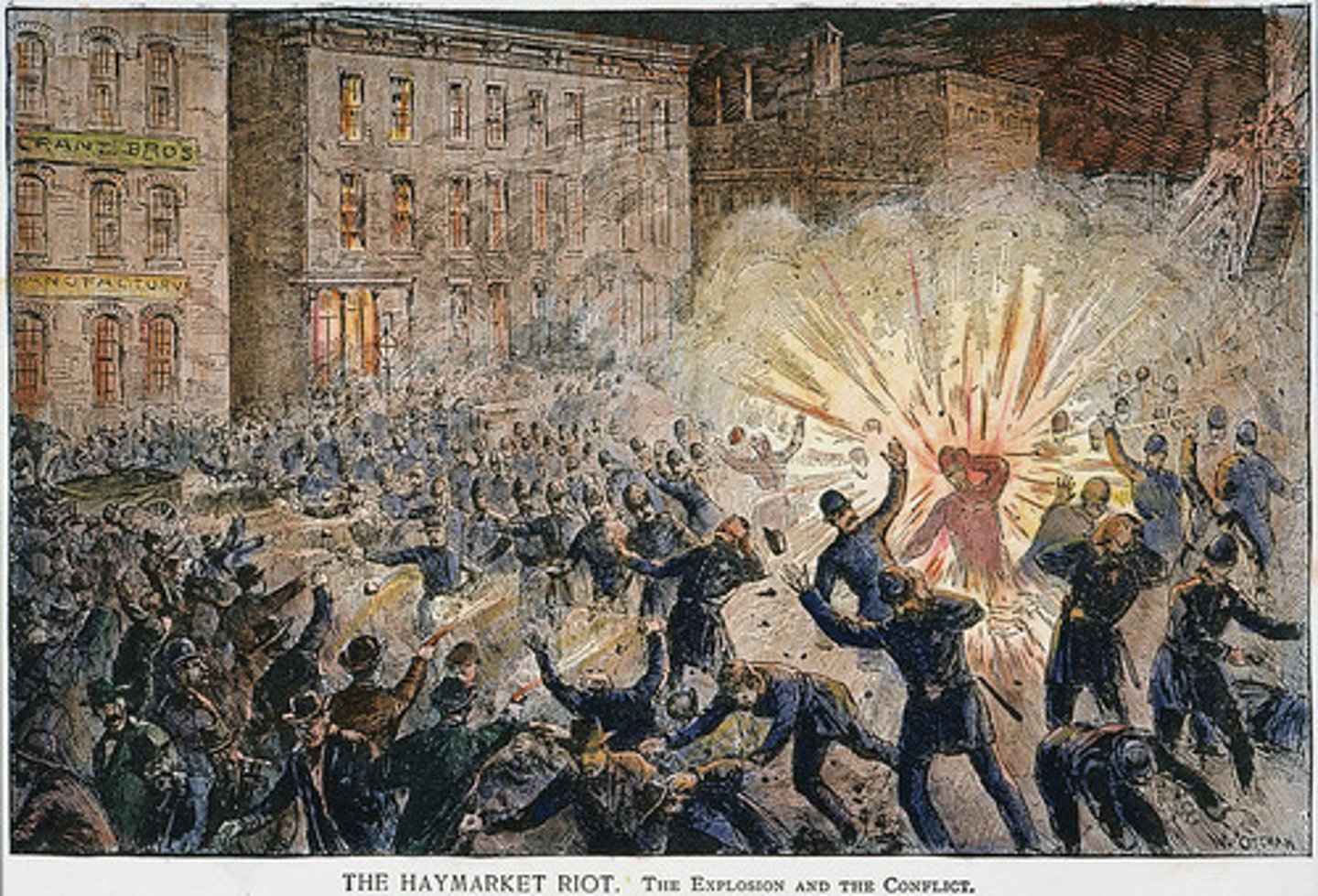
American Federation of Labor
An organization of various trade unions that fought for specific reforms (as opposed to broad changes supported by the Knights of Labor).
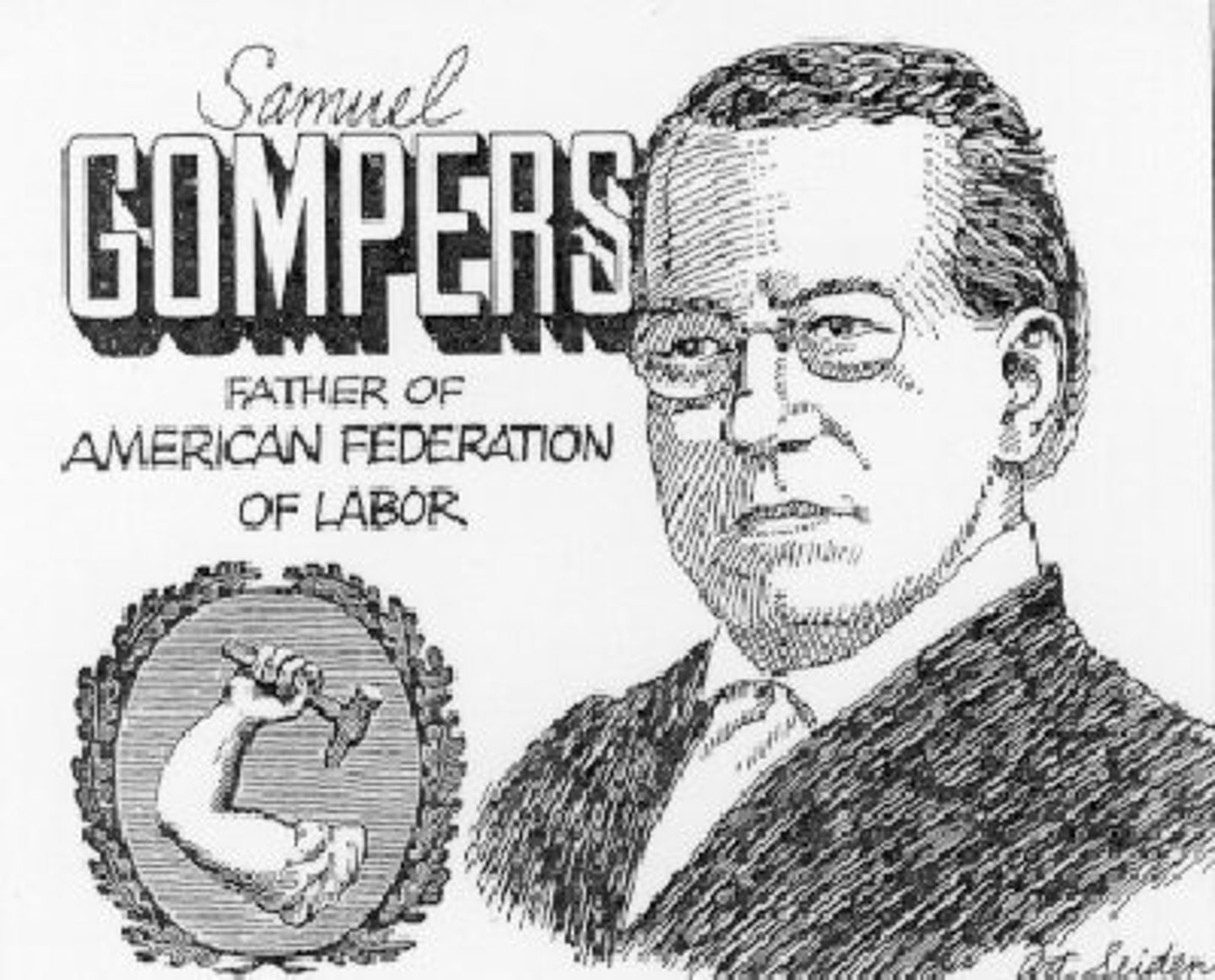
Pullman Strike (1894)
Workers rebelled because the Pullman Palace Car Company cut wages by 1/3 and the American Federation of Labor refused to support the strikers. Military action was needed in order to keep mail delivery on track.
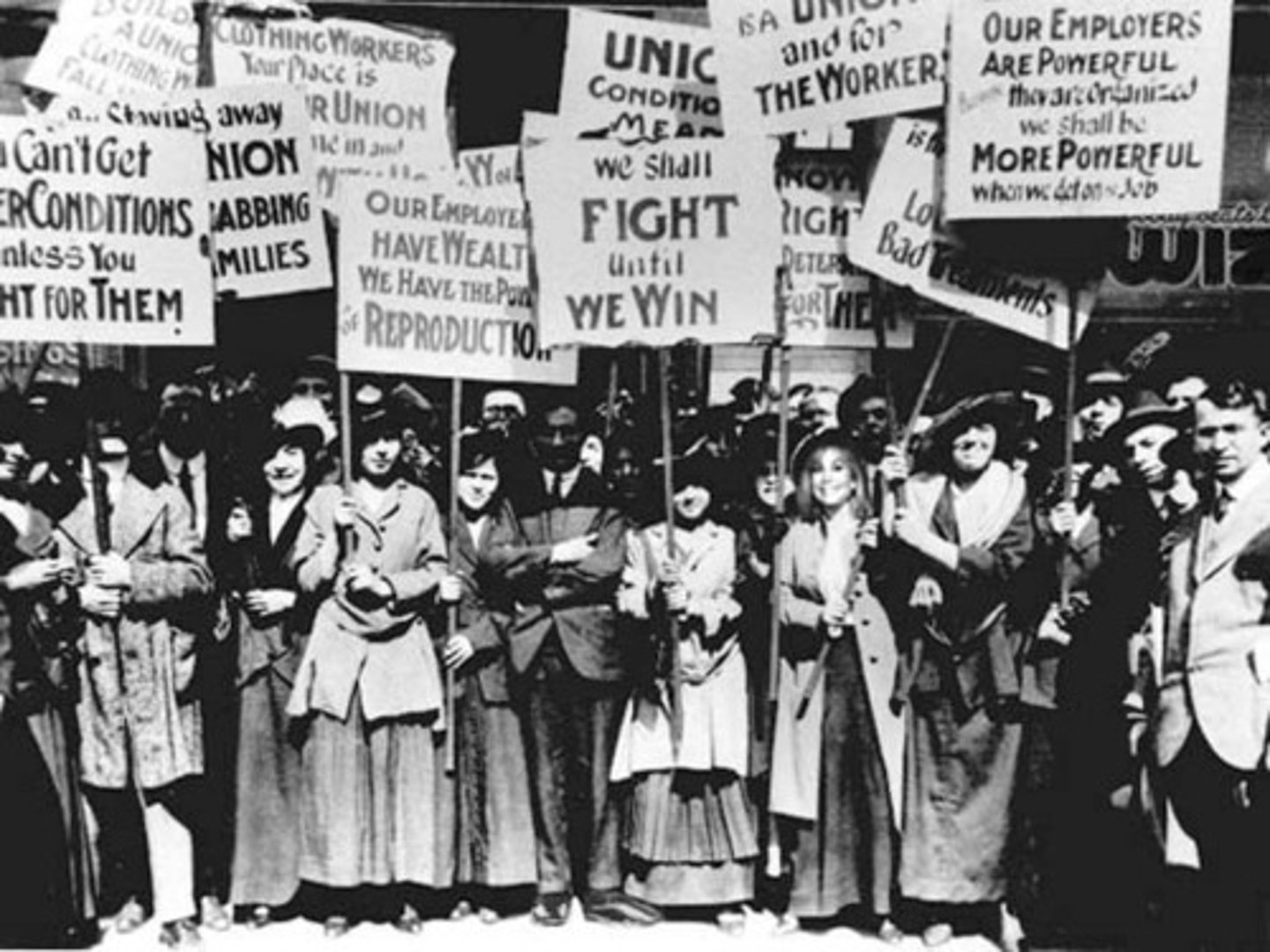
"New Immigrants"
immigrants from southern and eastern Europe such as Poland, Italy, etc. that arrived in the US in the latter half of the 19th century
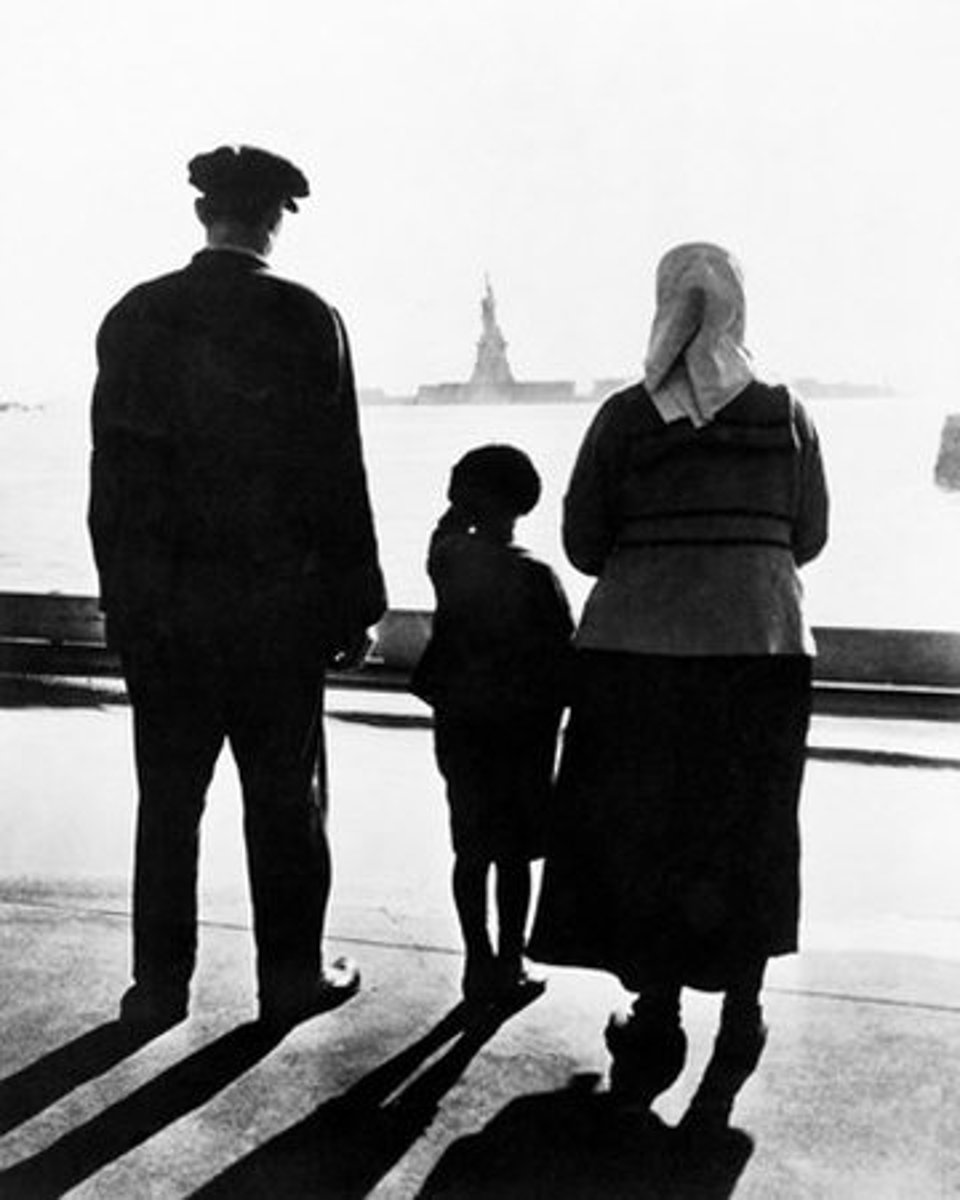
Chinese Exclusion Act
First law limiting immigration based on race; effectively stopped immigration from China through the end of WWII.
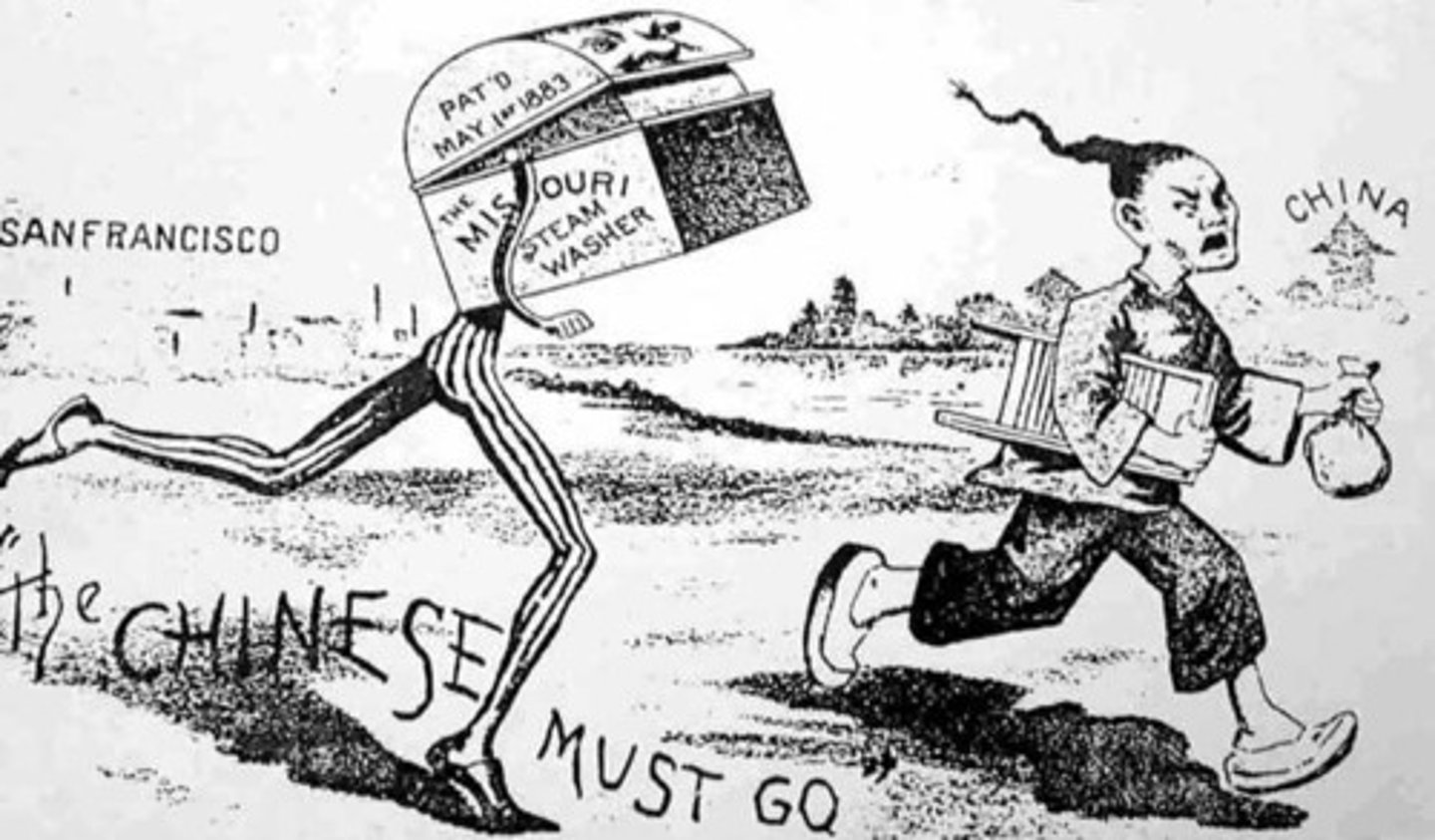
Political Machine
Unofficial political organization that works to win elections in order to exercise power; sometimes referred to as a shadow government; rose to power in the late 1800s because of ill-equipped local governments that failed to meet the needs of growing urban populations
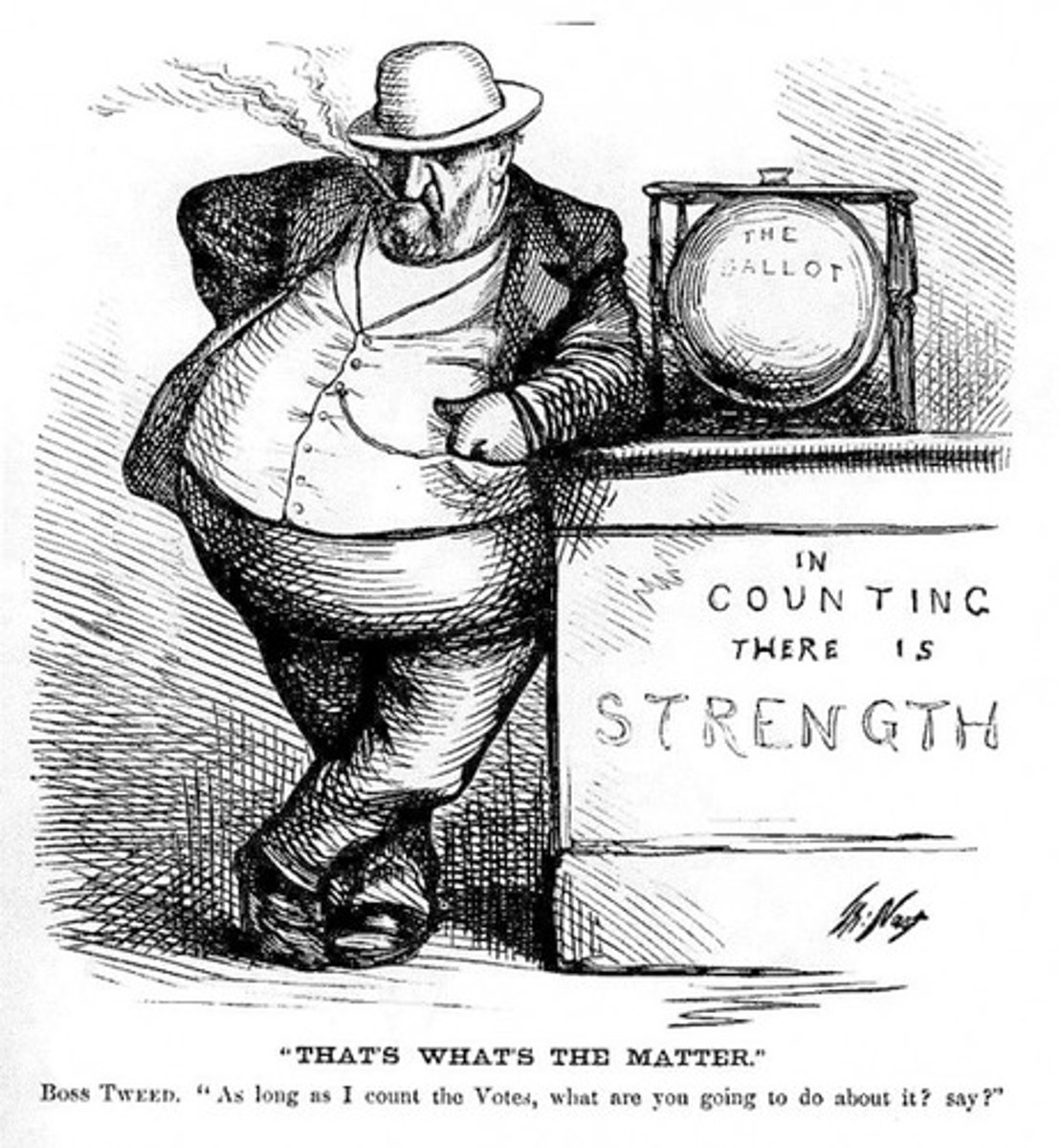
Tammany Hall
Political machine of New York City that was well-known for its corruption; lead by William Boss Tweed
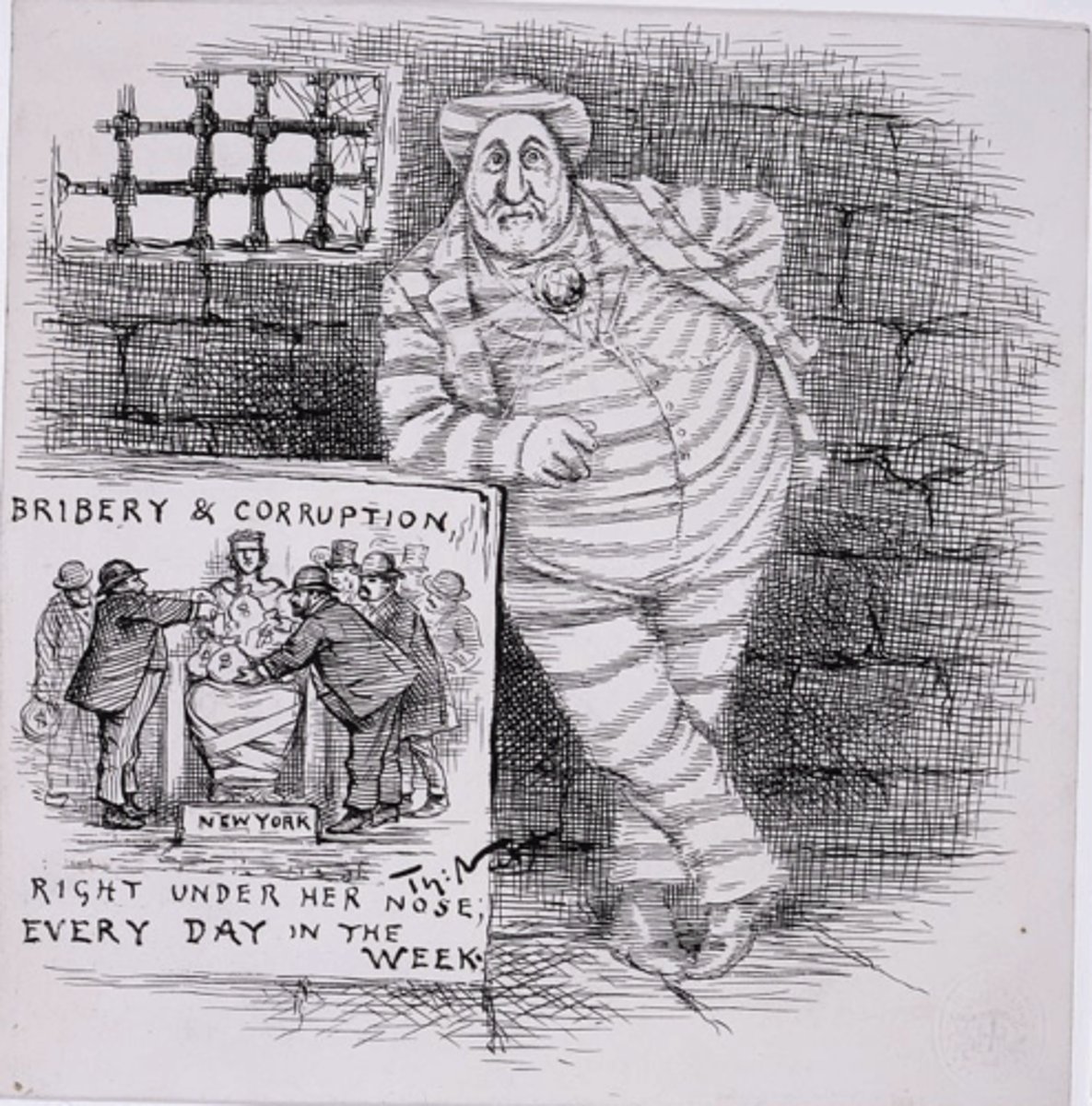
Grange Movement and Farmers Alliance
Grassroots movements that attempted to address the plight of farmers in the late 1800s; attempted to regulate railroads and enlarge opportunity for credit; evolved into Populist movement.
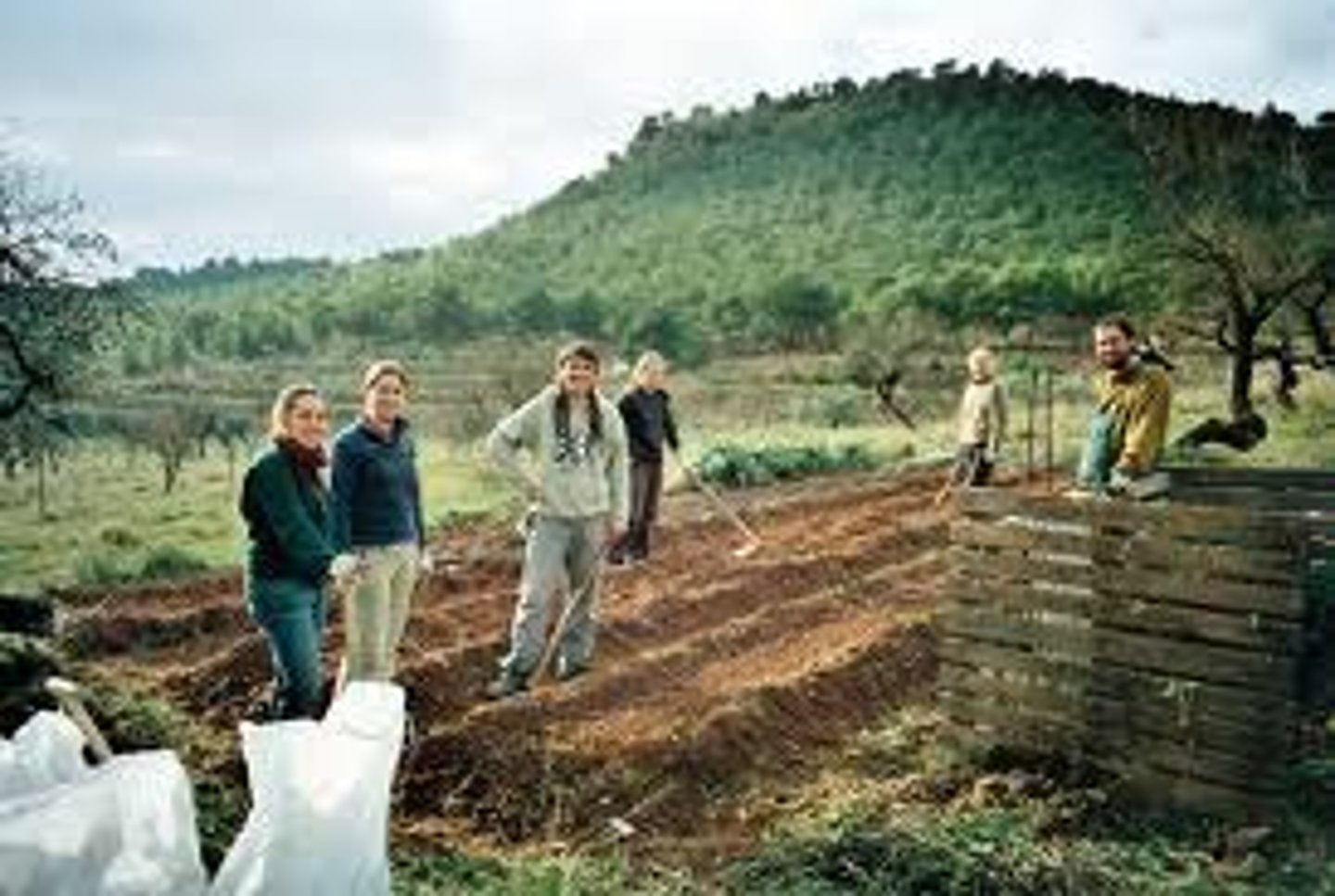
William Jennings Bryan
Democratic presidential hopeful that was a member of the Populist Party; free silver advocate; "Do not crucify mankind on a cross of gold".
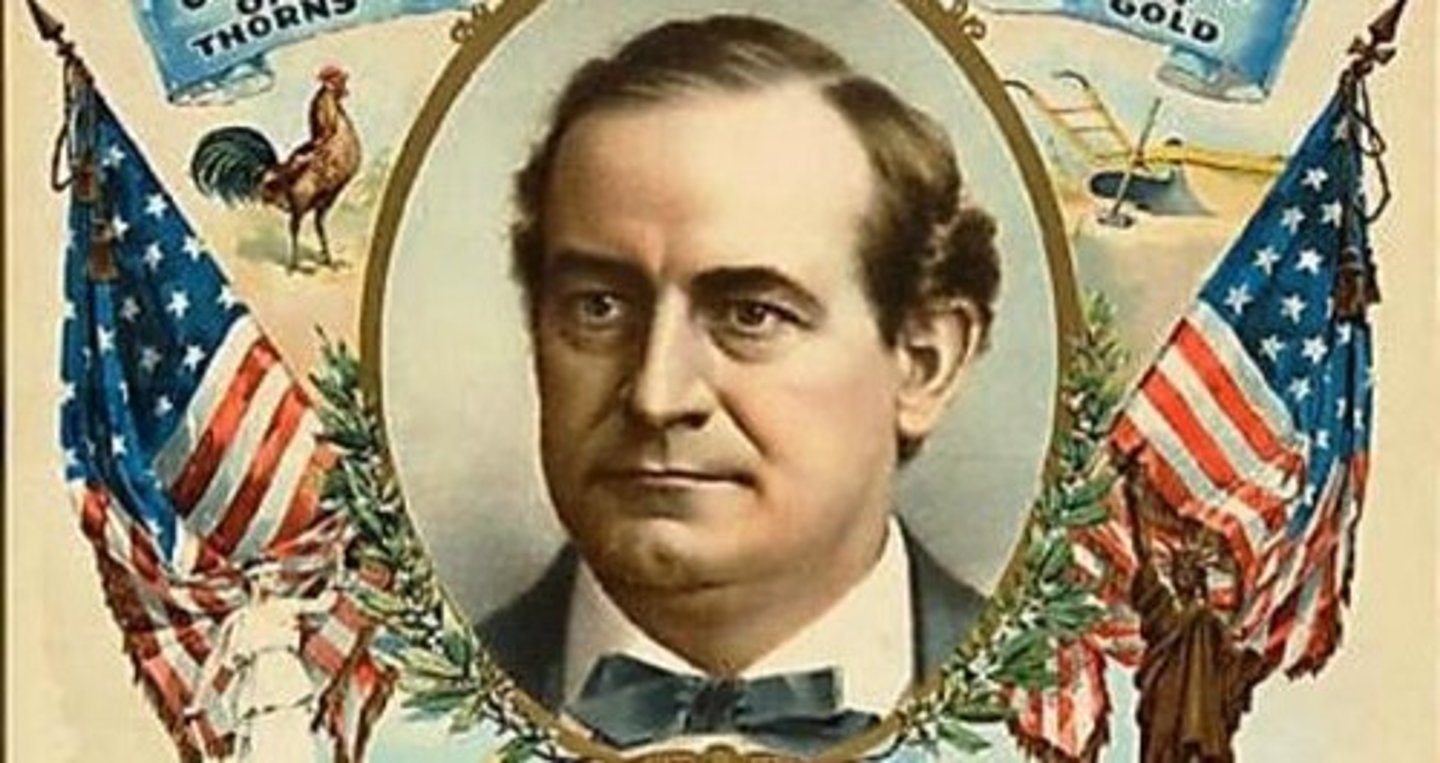
New South
After the Civil War, southerners promoted a new vision for a self-sufficient southern economy built on modern capitalist values, industrial growth, and improved transportation. In reality, this growth was fairly slow. Promoted tenement farming and sharecropping.

Andrew Carnegie
A Scottish-born American industrialist and philanthropist who founded the Carnegie Steel Company in 1892. By 1901, his company dominated the American steel industry.
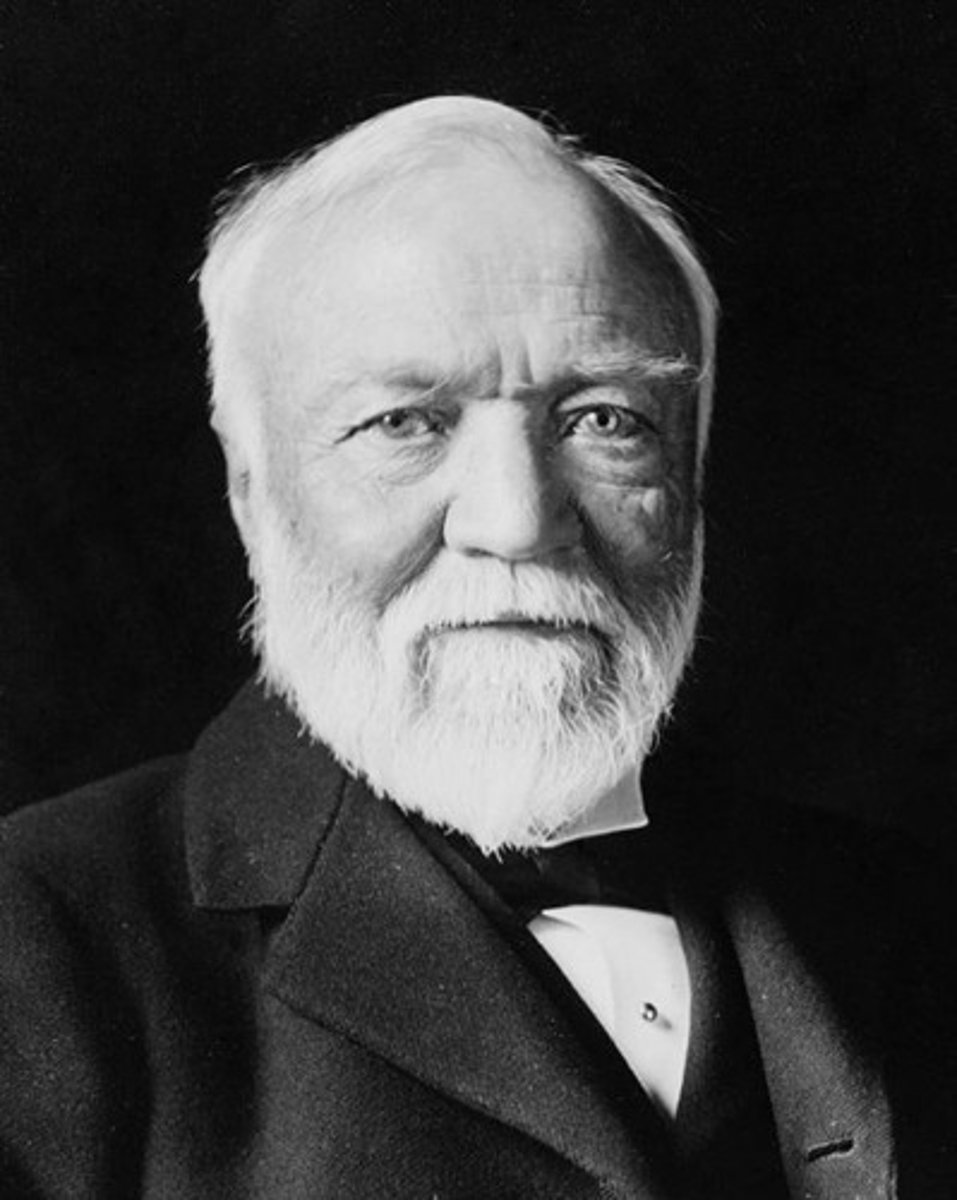
Social Gospel
Late 19th-century movement Protestant movement preaching that all true Christians should be concerned with the plight of immigrants and other poor residents of American cities and should financially support efforts to improve lives of these poor urban dwellers. Settlement houses were often financed by funds raised by ministers of this movement.
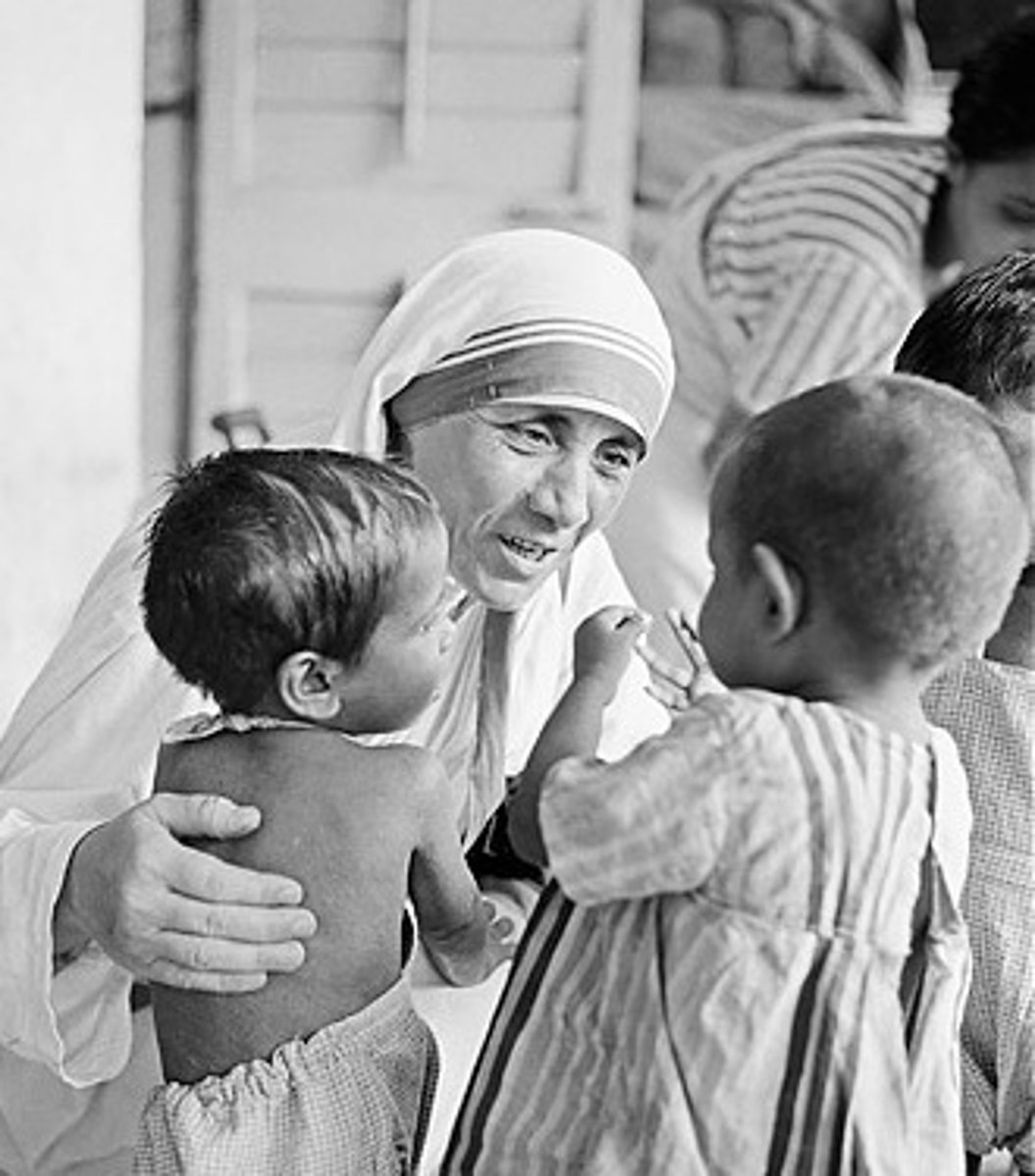
John D. Rockefeller
Wealthy owner of Standard Oil Company. Considered to be a robber baron who used ruthless tactics to eliminate other businesses. Built trusts and used money to influence government.
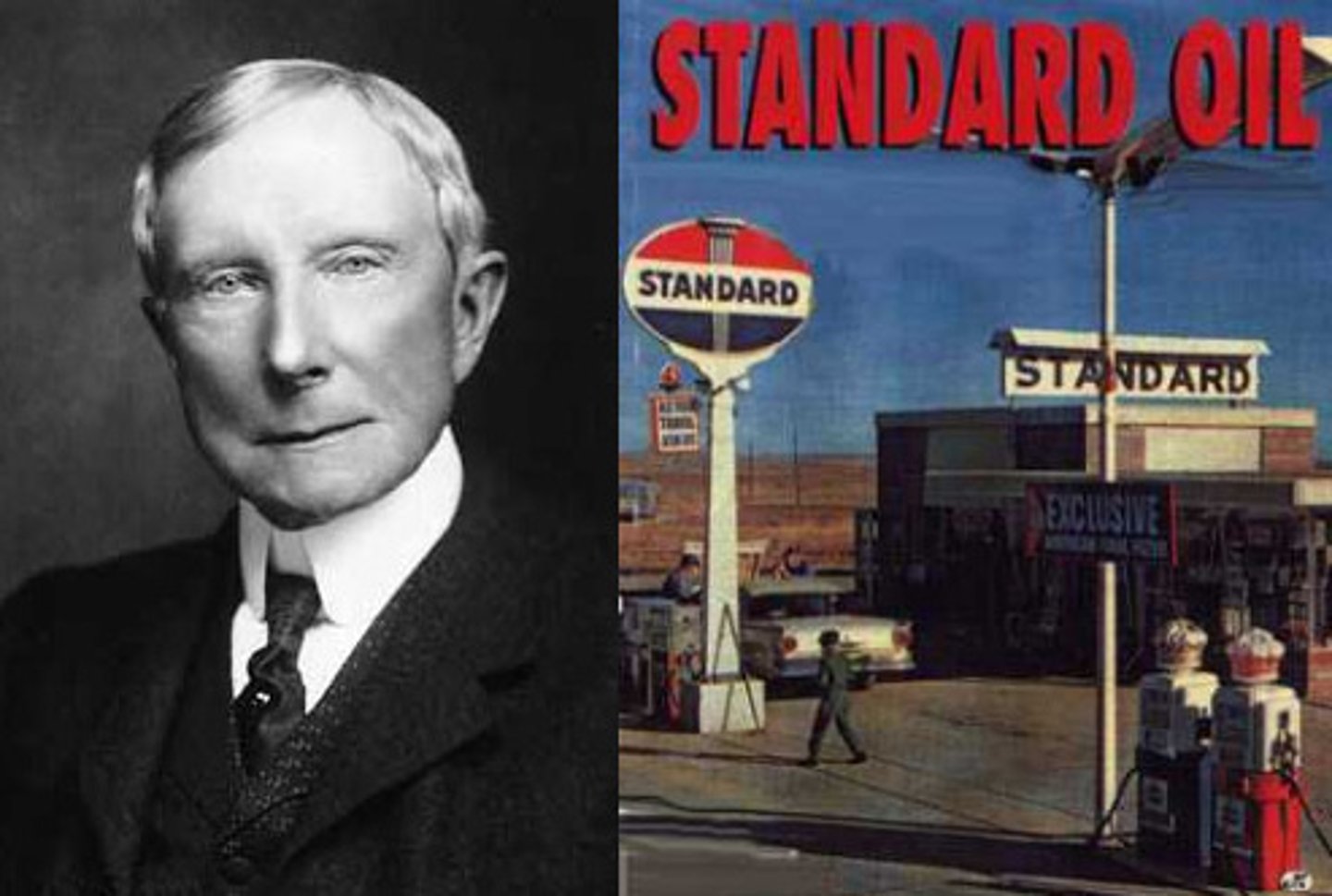
Industrial Revolution
Period characterized by the rapid social and economic changes in manufacturing and agriculture that occurred in England during the late 18th century and rapidly diffused to other parts of the developed world. In the US, this occurred during the period roughly 1825-1925.
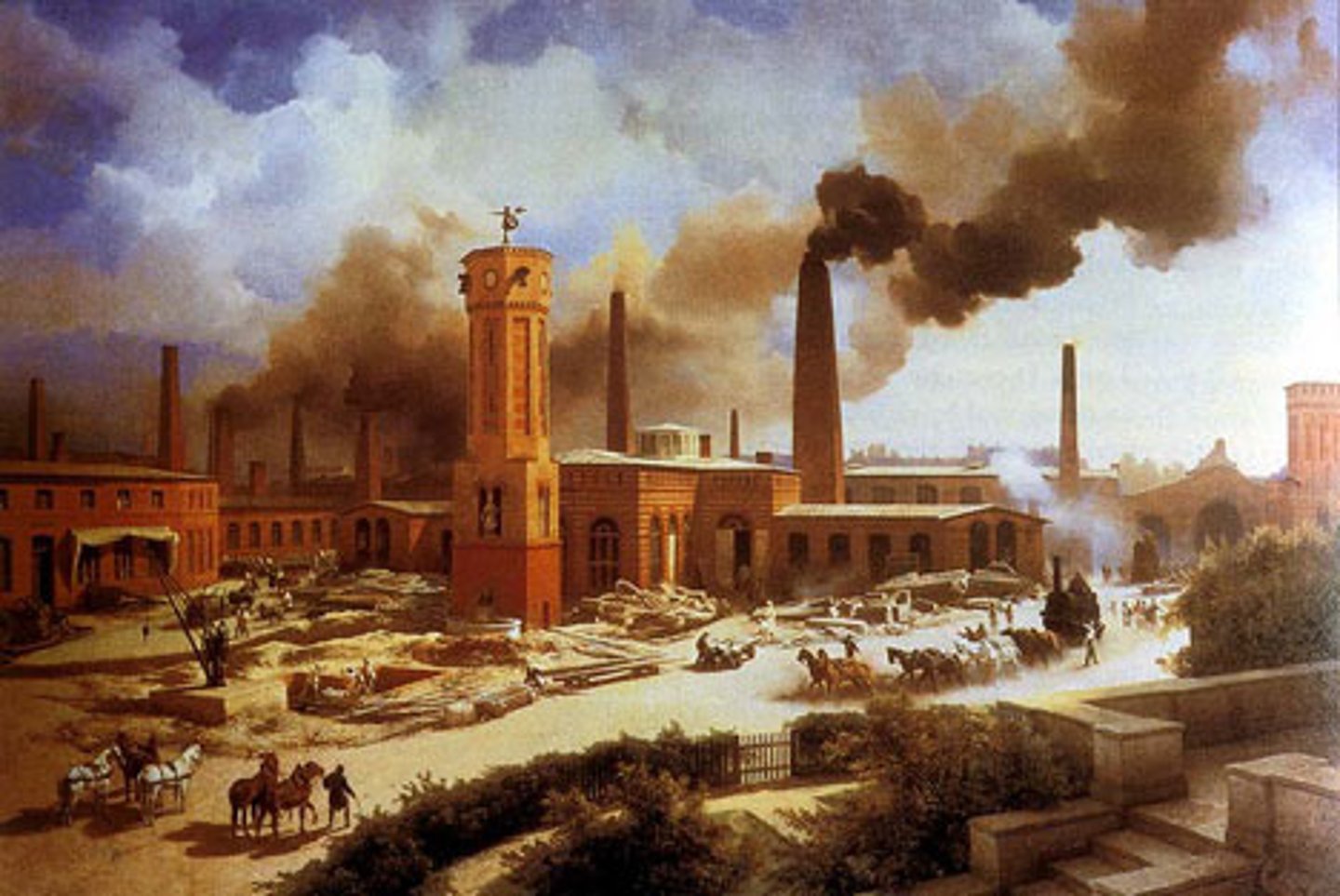
Booker T. Washington
Prominent black American, born into slavery, who believed that racism would end once blacks acquired useful labor skills and proved their economic value to society, was head of the Tuskegee Institute in 1881. His book "Up from Slavery."
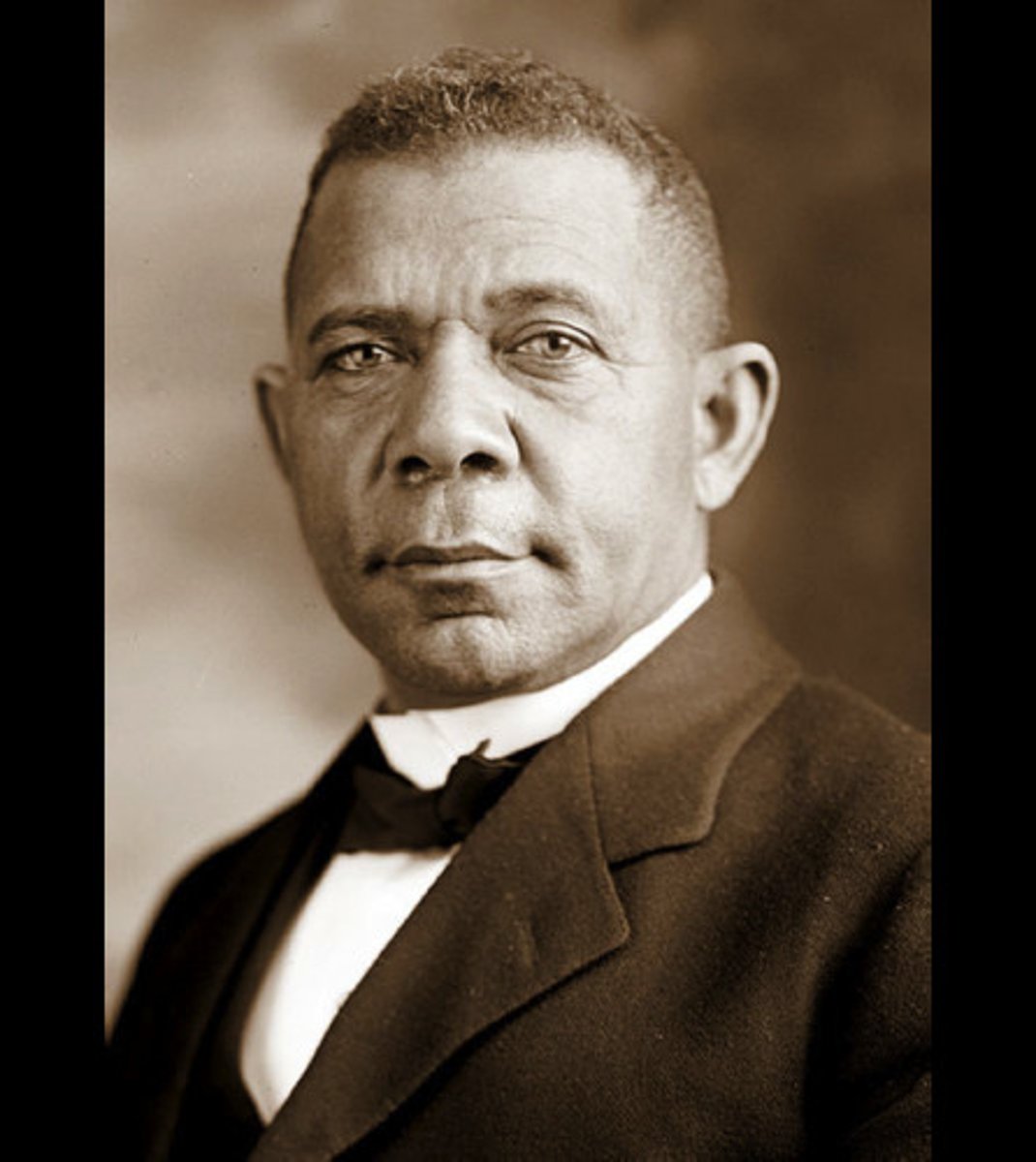
W.E.B. DuBois
Co-founded the NAACP to help secure legal equality for minority citizens.
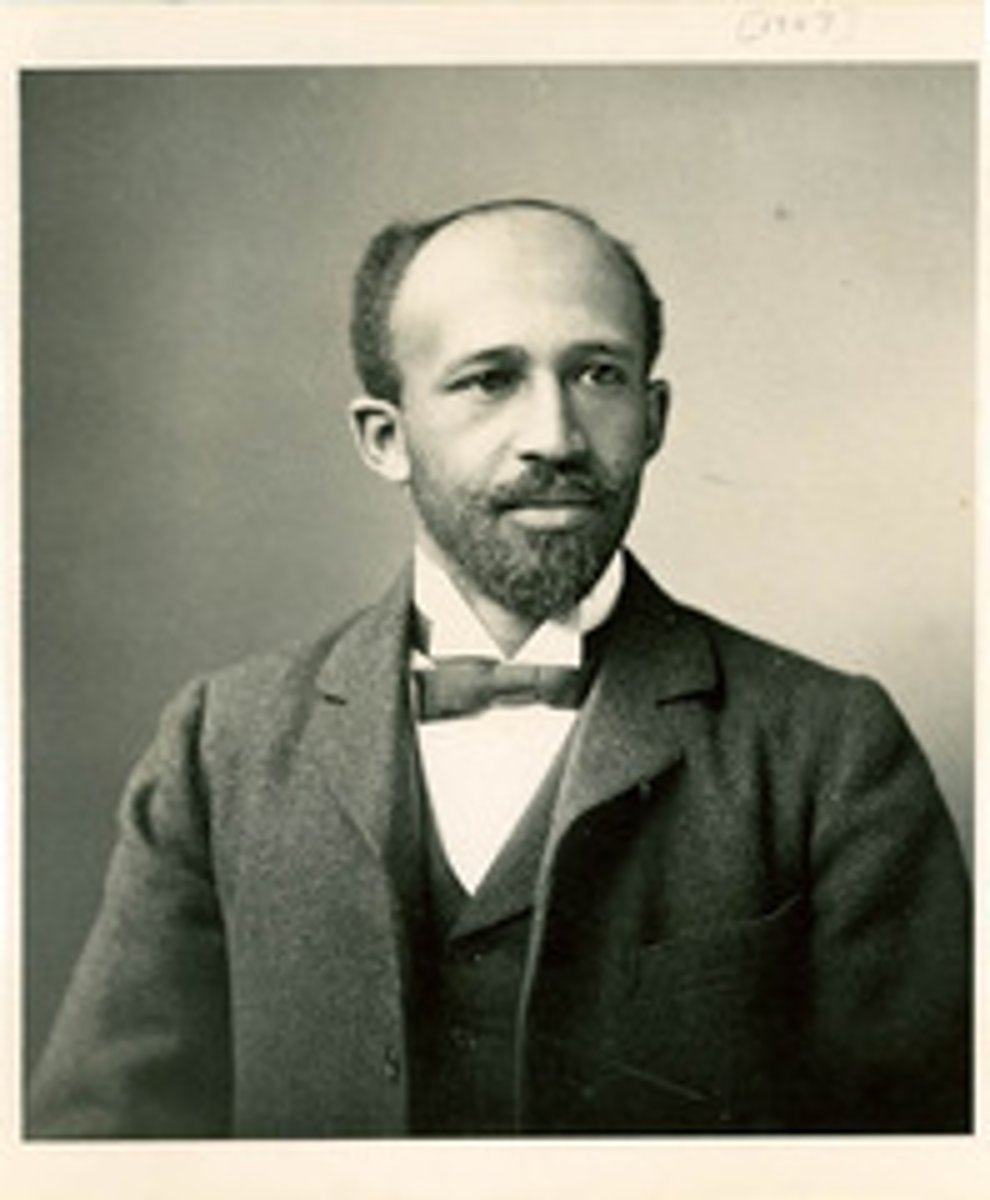
Ida B. Wells
African American journalist. published statistics about lynching, urged African Americans to protest by refusing to ride streetcards or shop in white owned stores
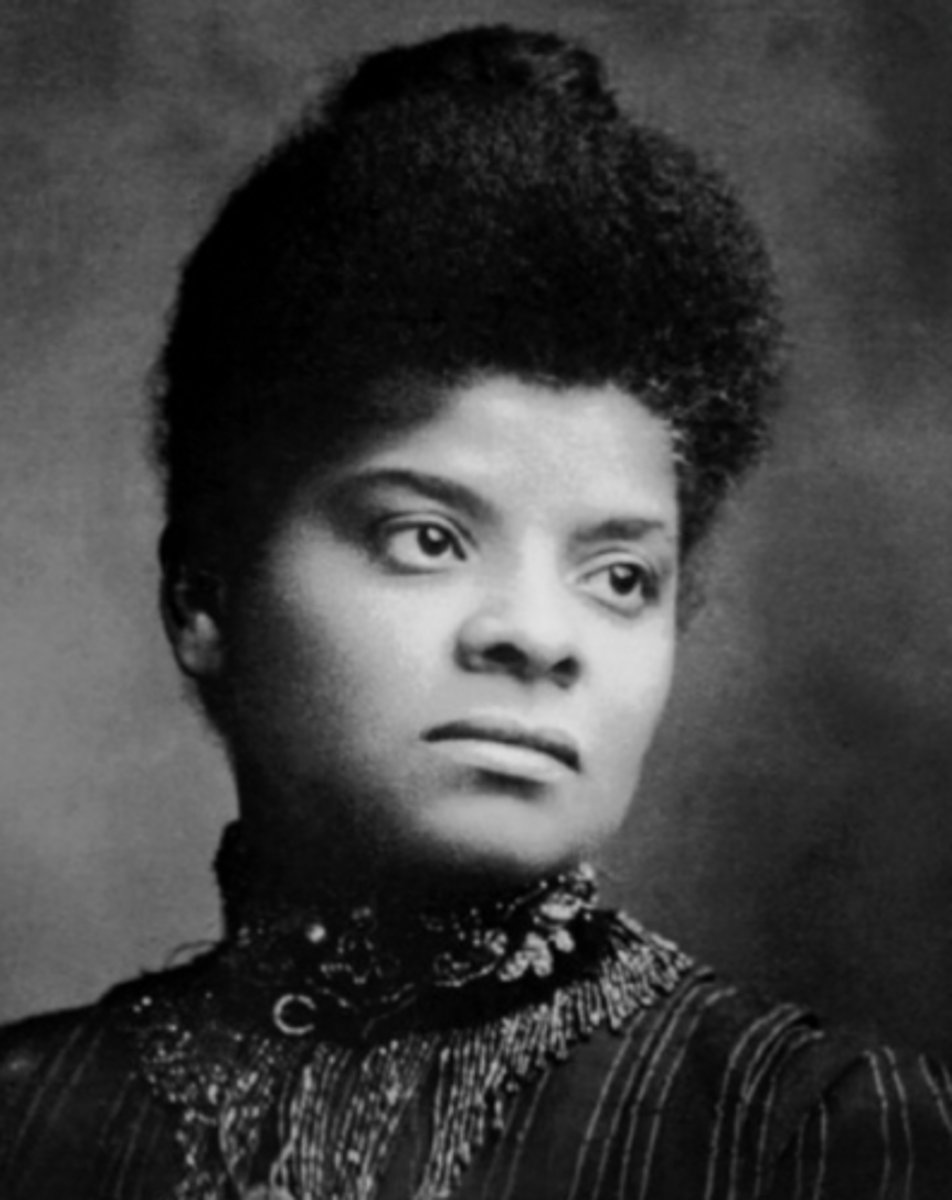
Sharecropping
A system used on southern farms after the Civil War in which farmers worked land owned by someone else in return for a small portion of the crops.
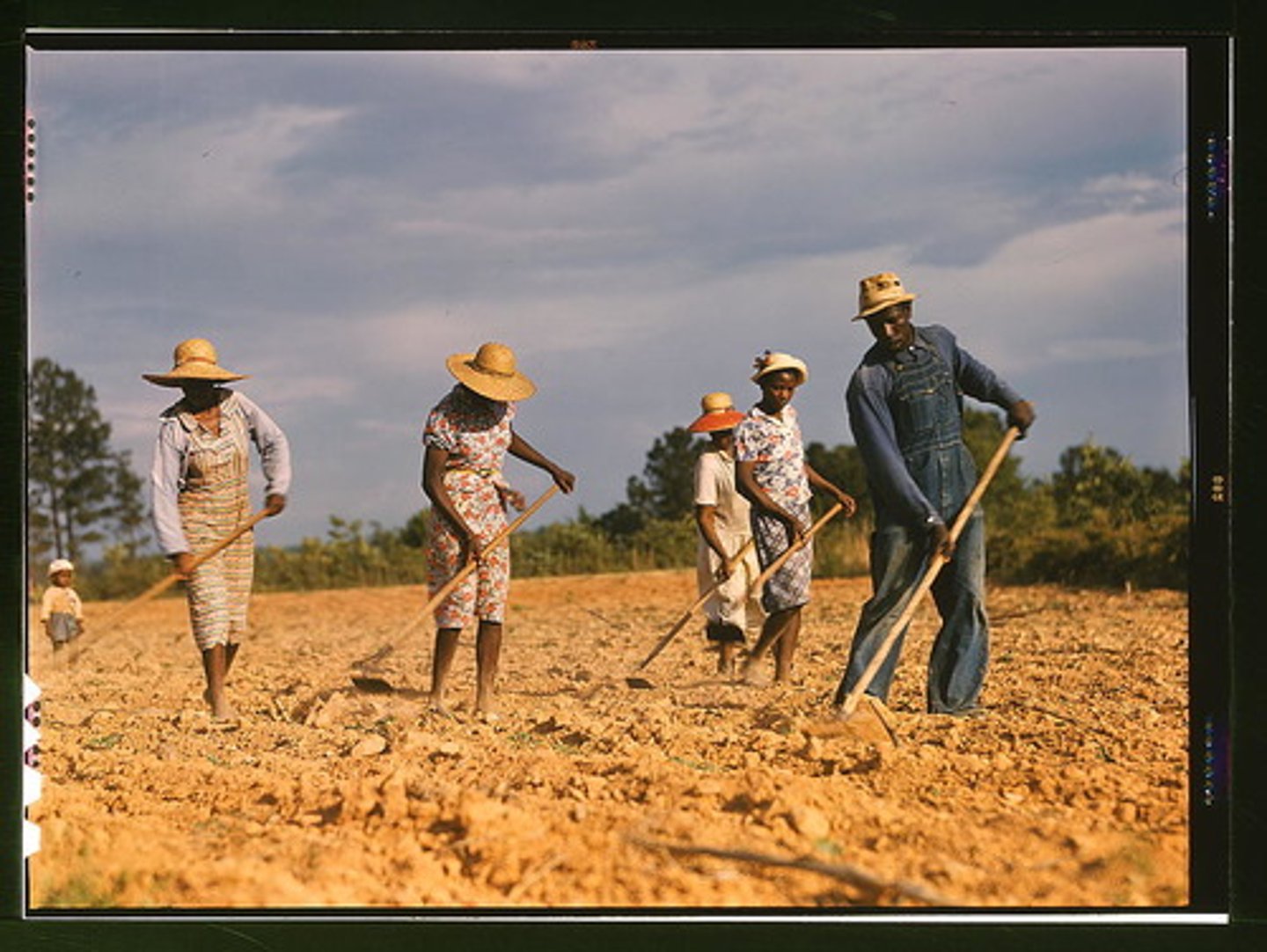
Laissez-faire economics
Theory that opposes governmental interference in economic affairs beyond what is necessary to protect life and property.
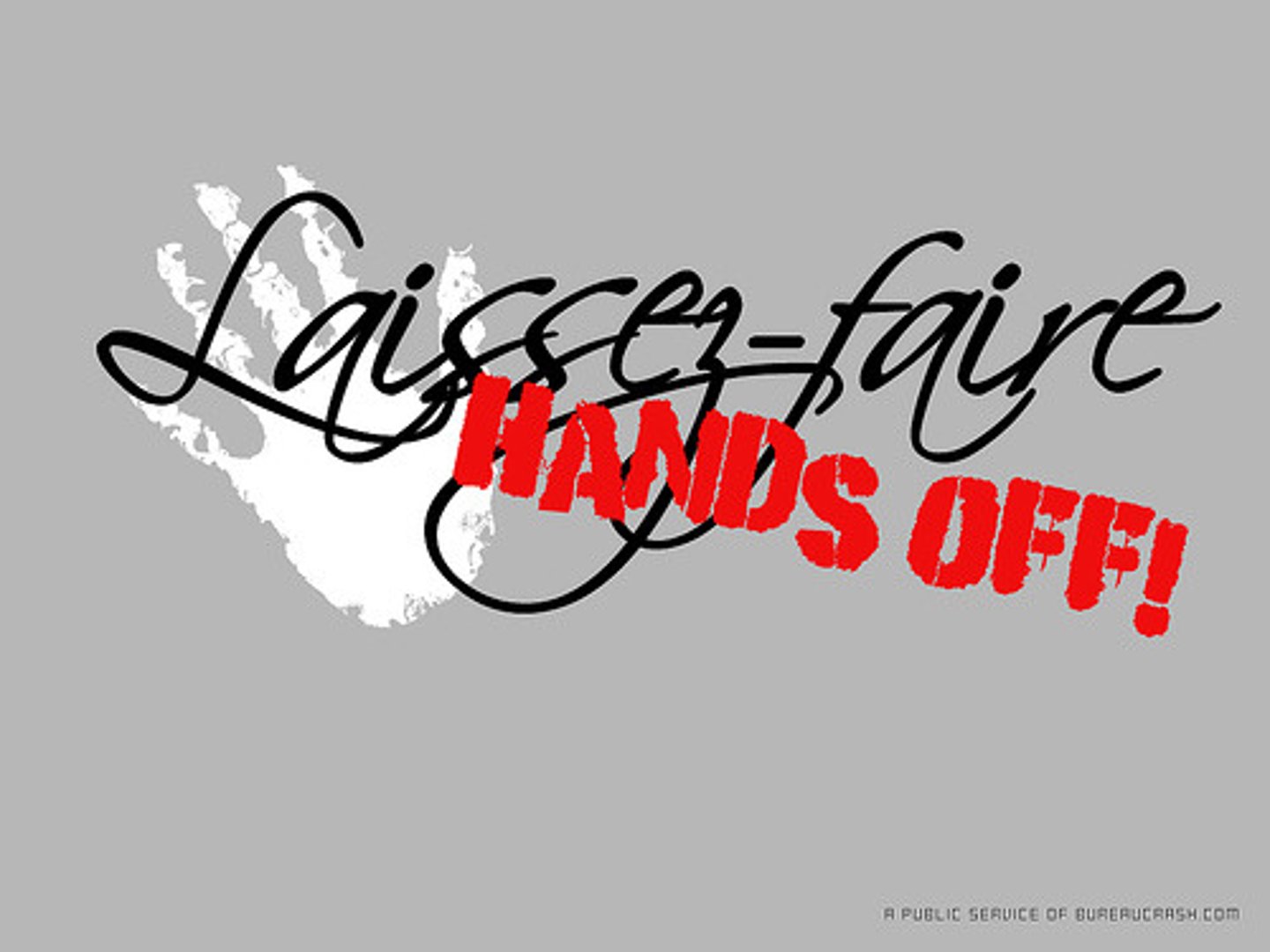
Machine Politics
an organizational style of local politics in which party bosses traded jobs, money, and favors for votes and campaign support
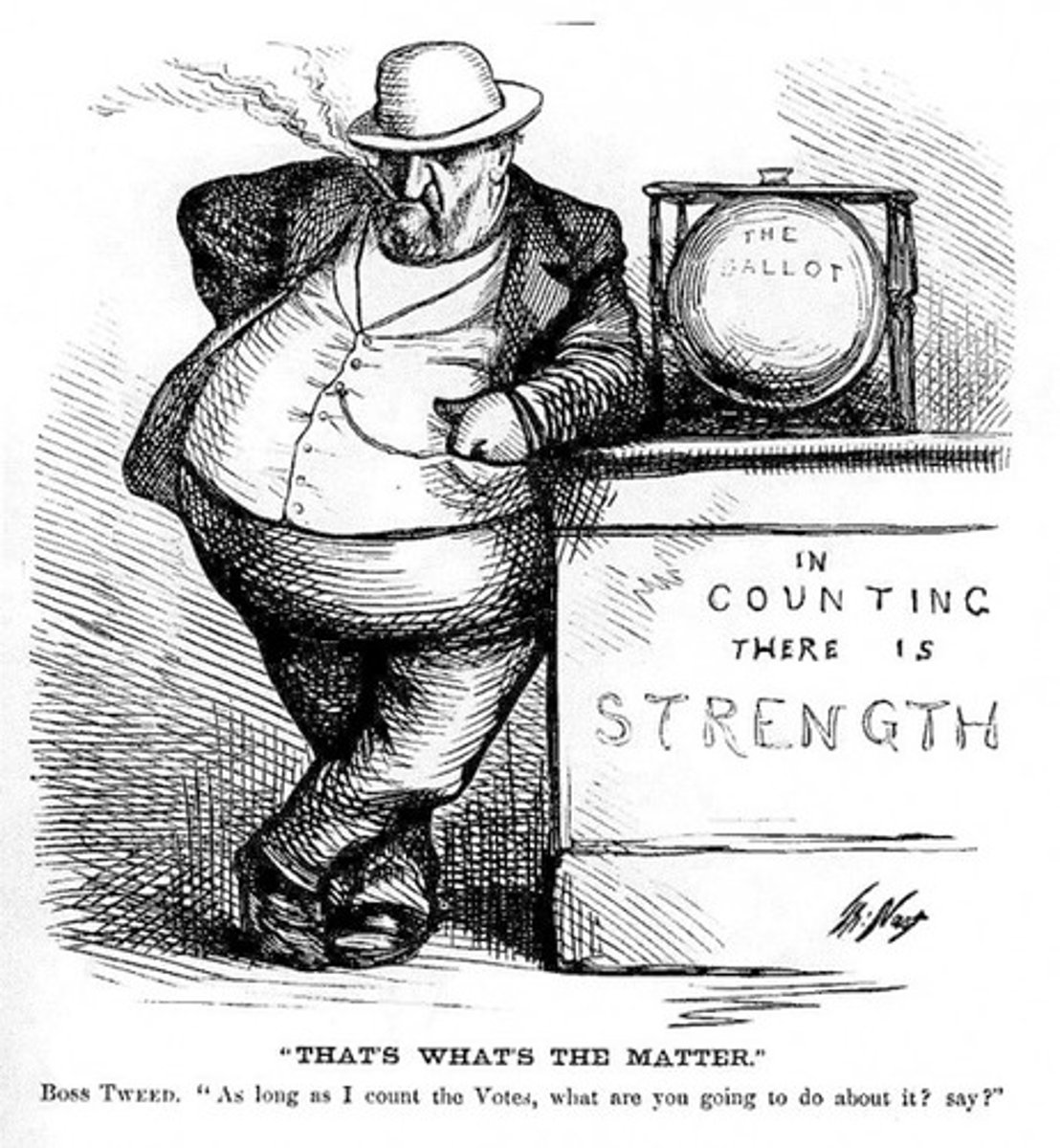
Stalwarts
A faction of the Republican party in the ends of the 1800s Supported the political machine and patronage. Conservatives who hated civil service reform.
Half-Breeds
Favored tariff reform and social reform, major issues from the Democratic and Republican parties. They did not seem to be dedicated members of either party.
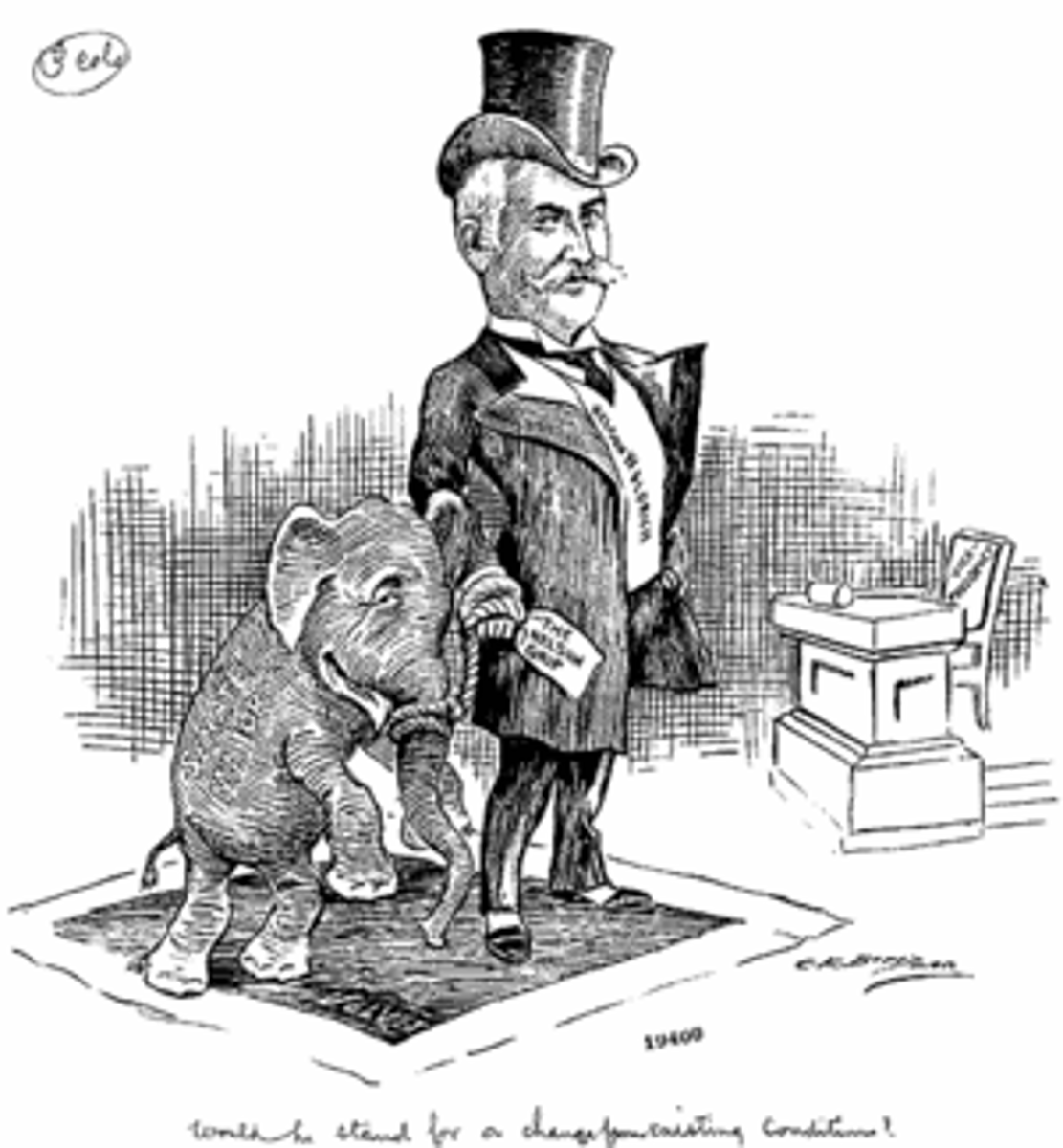
Mugwumps
Republican Party activists who had switched to the Democratic Party because they did not like the financial corruption that was associated with the Republican candidate James G. Blaine in 1884.

Muckrakers
Journalists who attempted to find corruption or wrongdoing in industries and expose it to the public

Pendleton Act
1883 law that created a Civil Service Commission and stated that federal employees could not be required to contribute to campaign funds nor be fired for political reasons
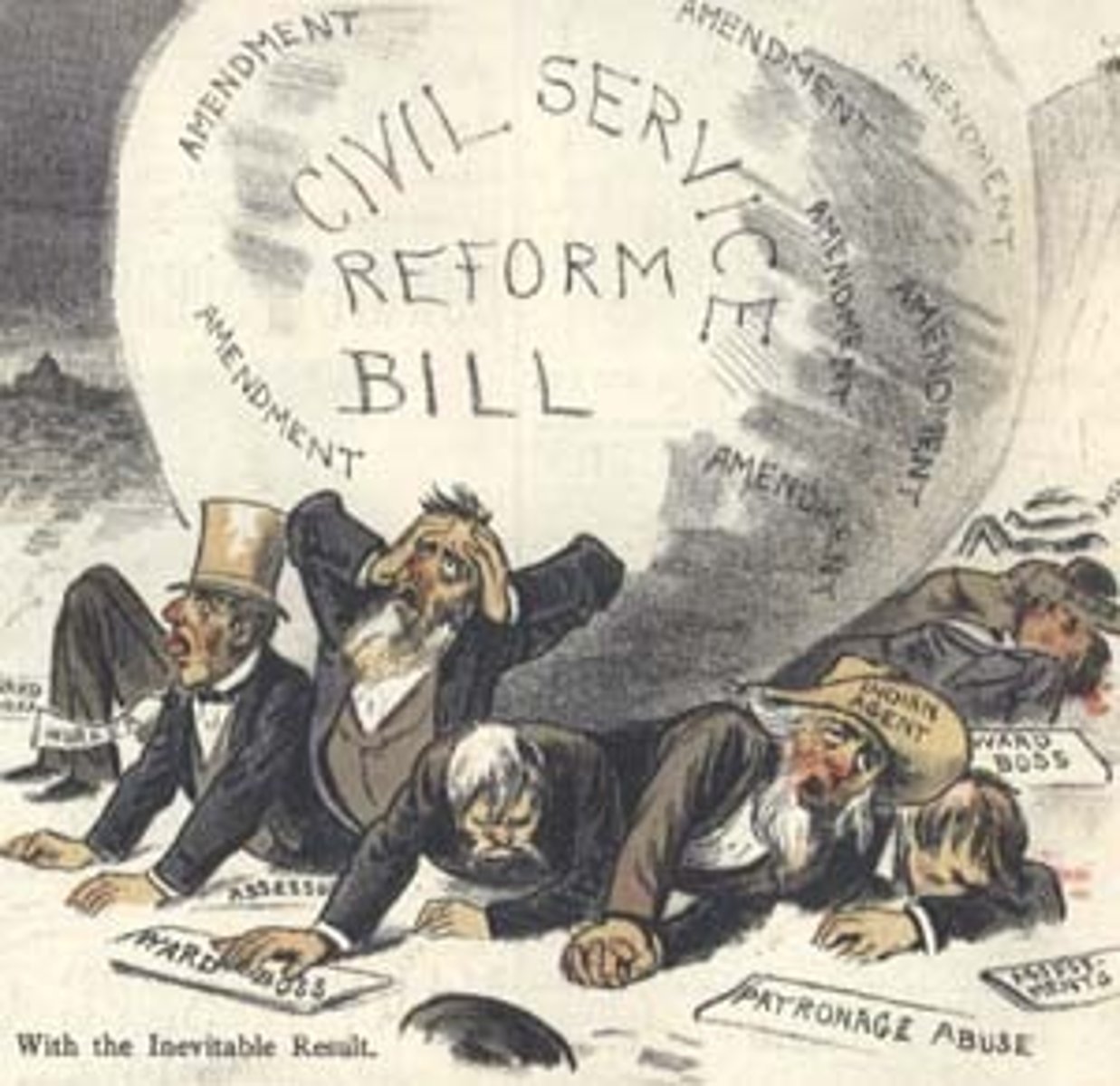
Insterstate Commerce Act
Called for all railroad charges to be fair and reasonable, forbade interstate railroad abuses
Sherman Antitrust Act
an 1890 law that banned the formation of trusts and monopolies in the United States

Homestead Strike
Strike at Andrew Carnegie's steel plant in which Pinkerton detectives clashed with steel workers
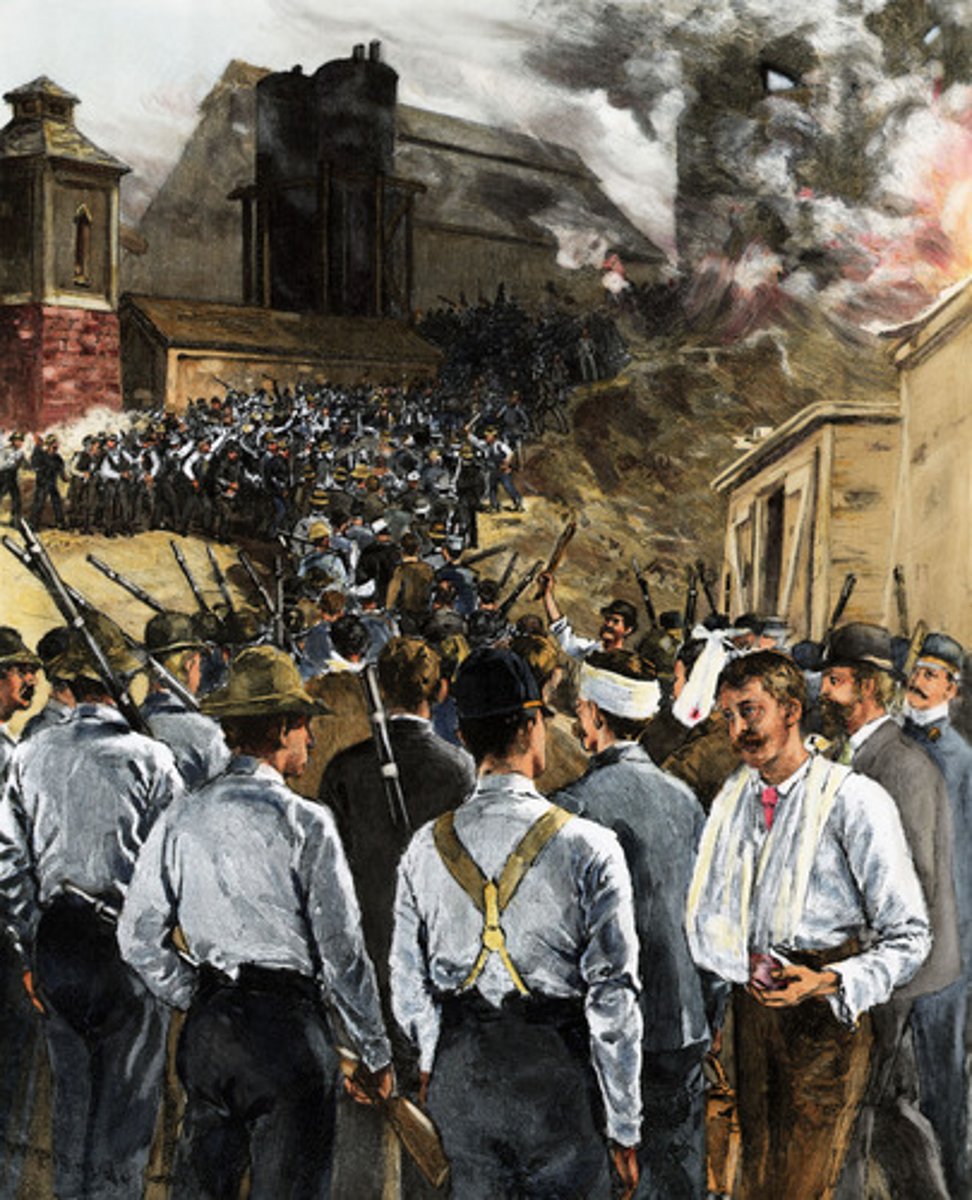
Wounded Knee Massacre
In December 1890, Army troops captured some of Sitting Bull's followers and took them to a camp. 300 Sioux men, women, and children were killed
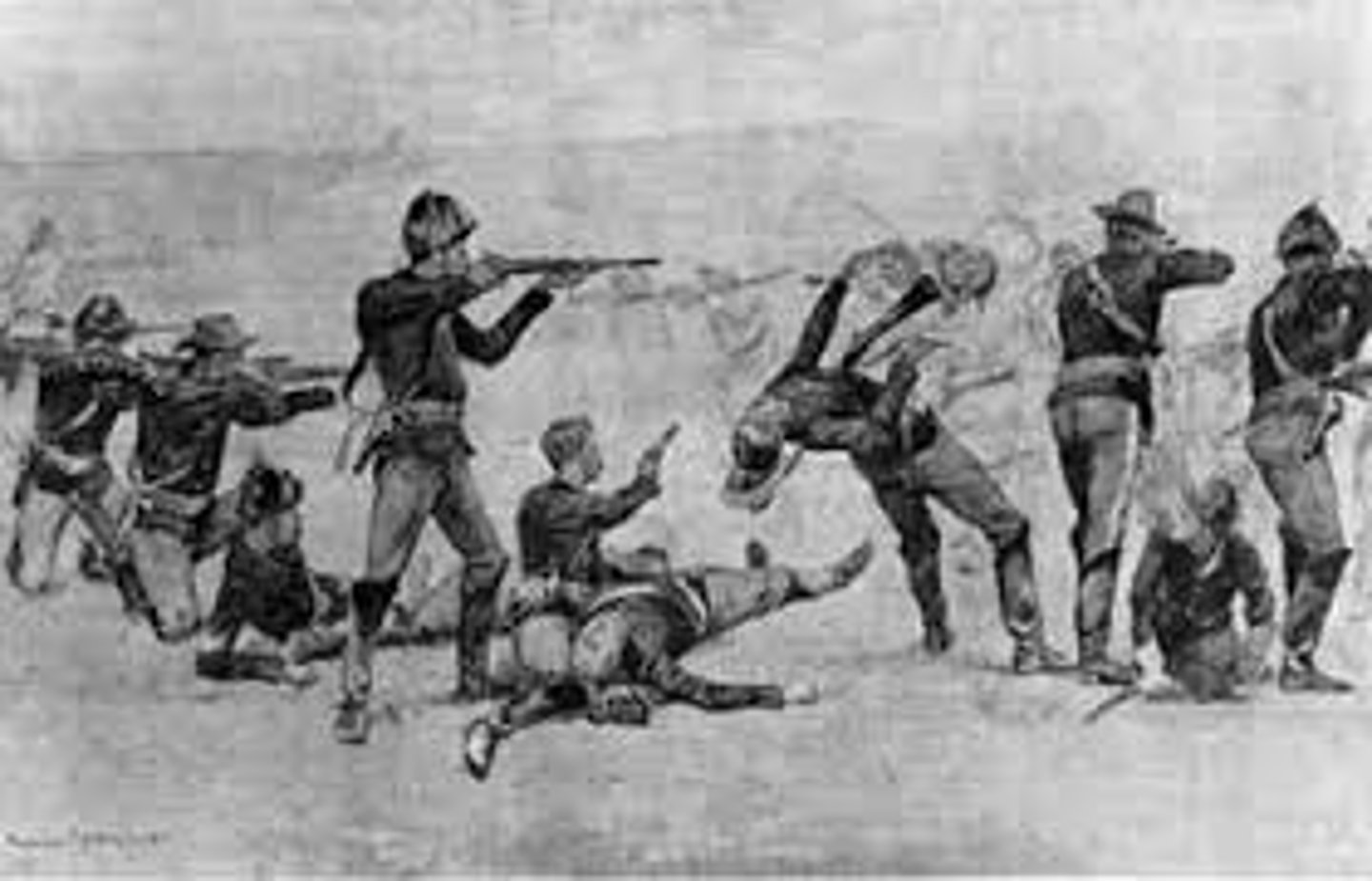
National Grange Movement
Organized in 1868 by Oliver H. Kelley as social and educational organization for farmers and their families.
